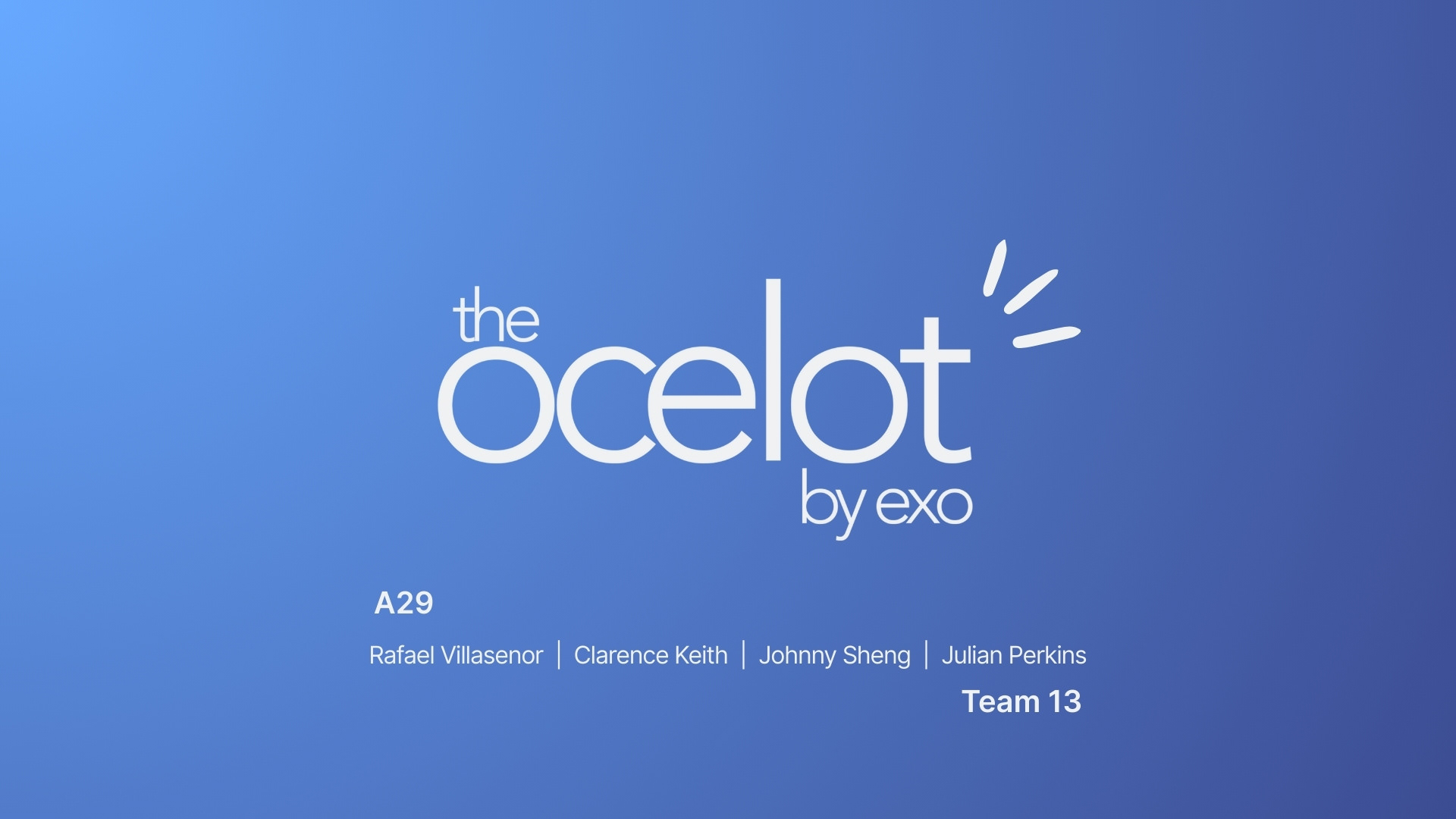
intro
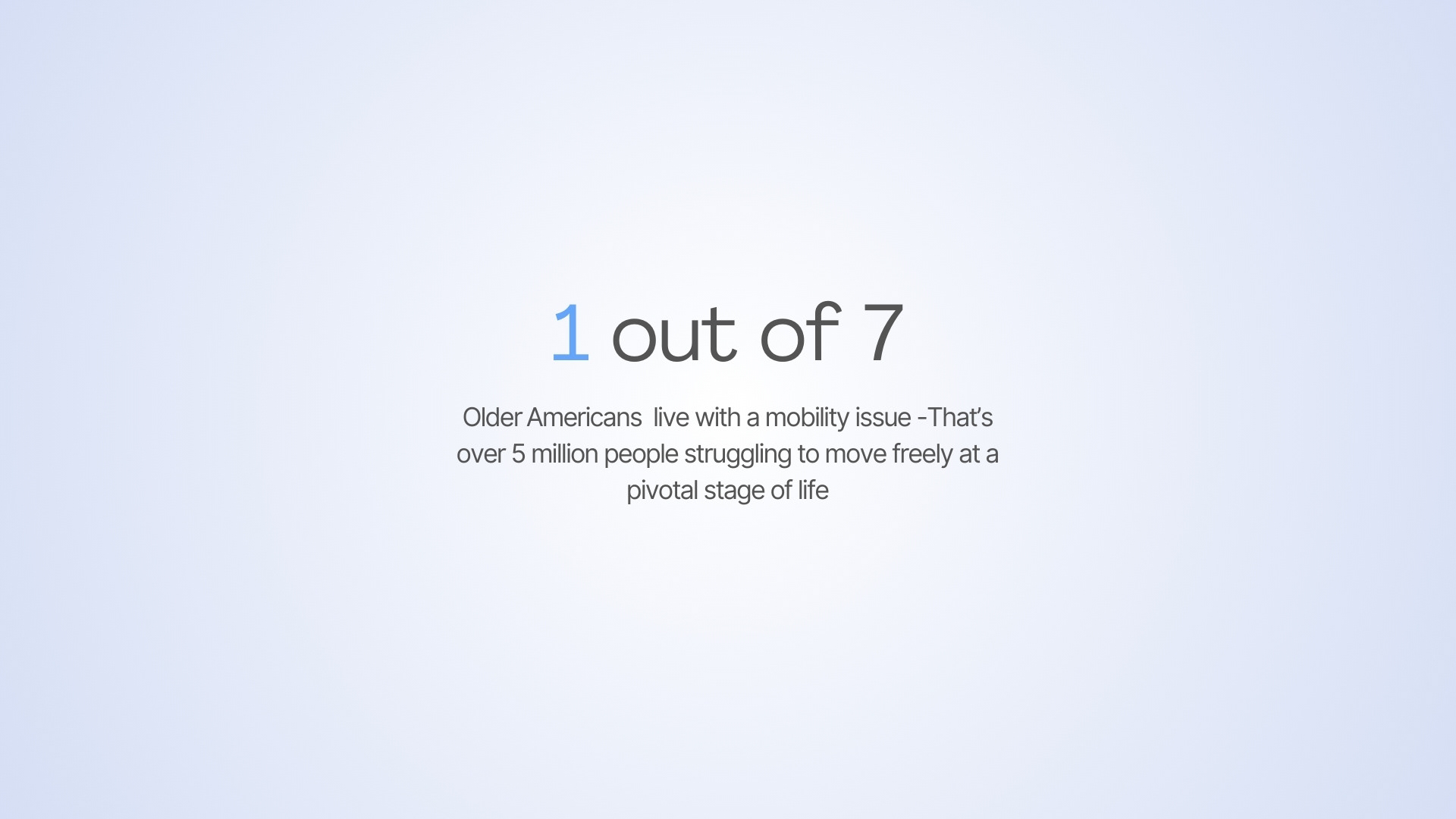
problem statement
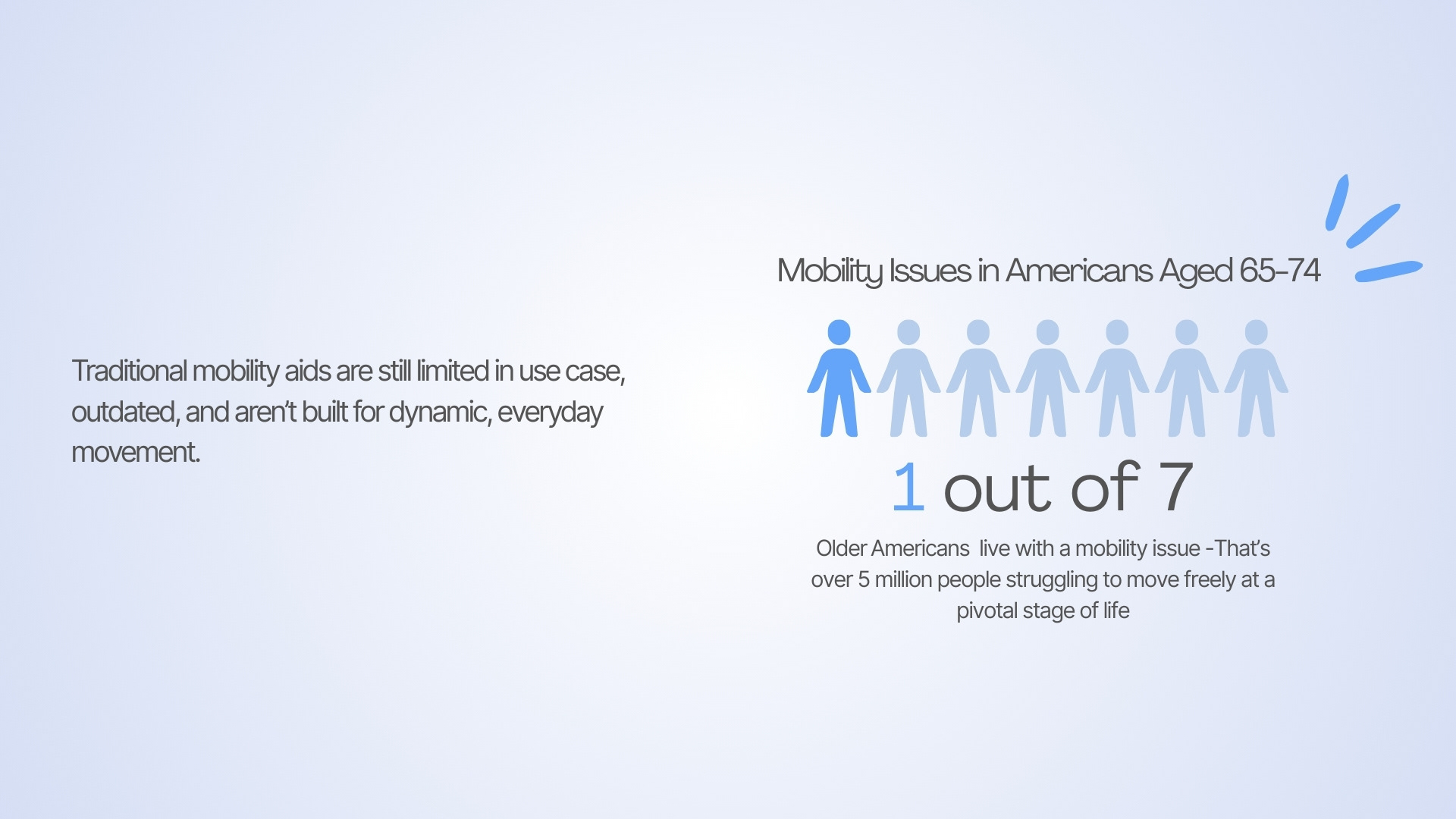
problem statement cont.
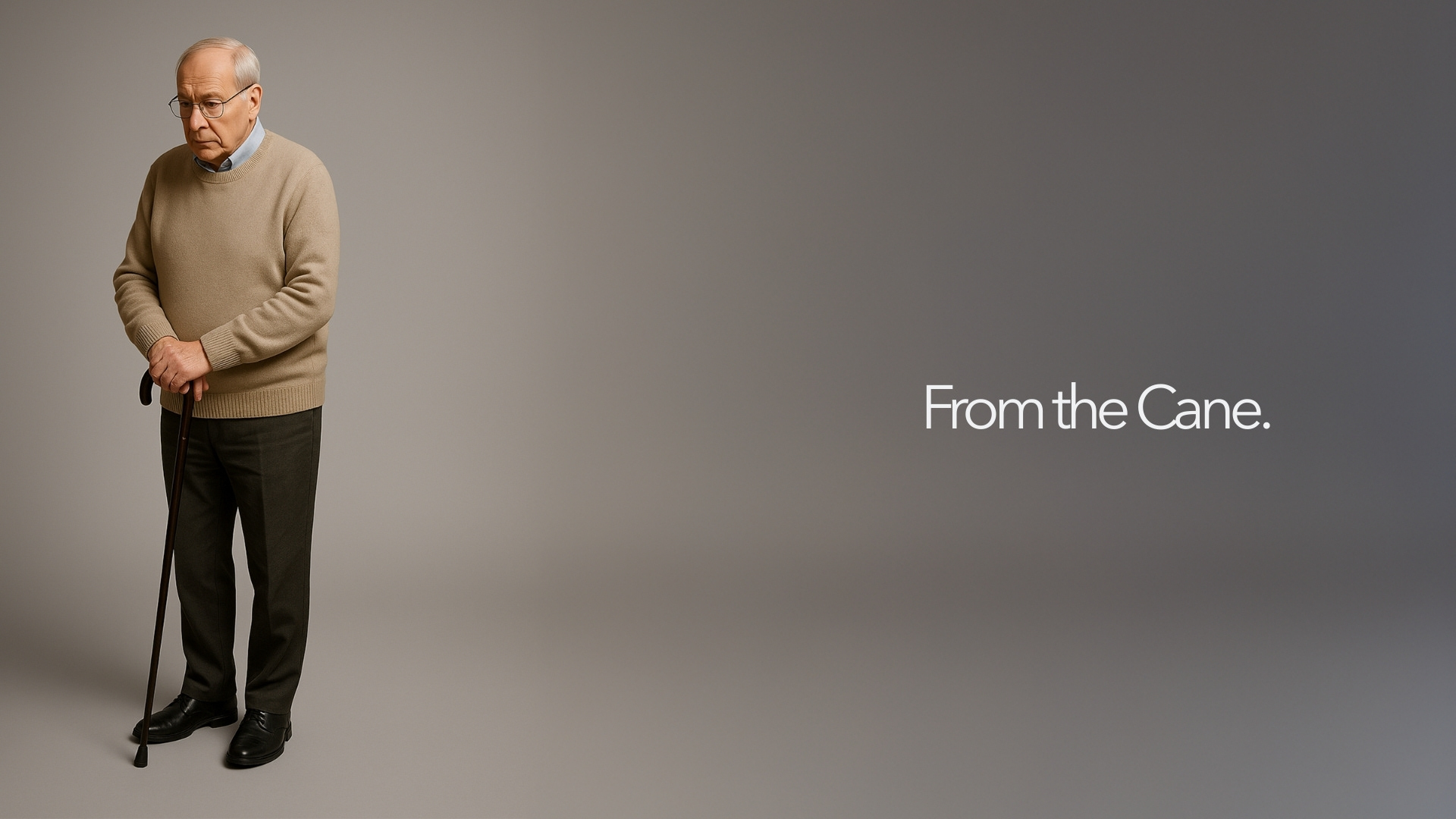
visual value prop. - emotional appeal
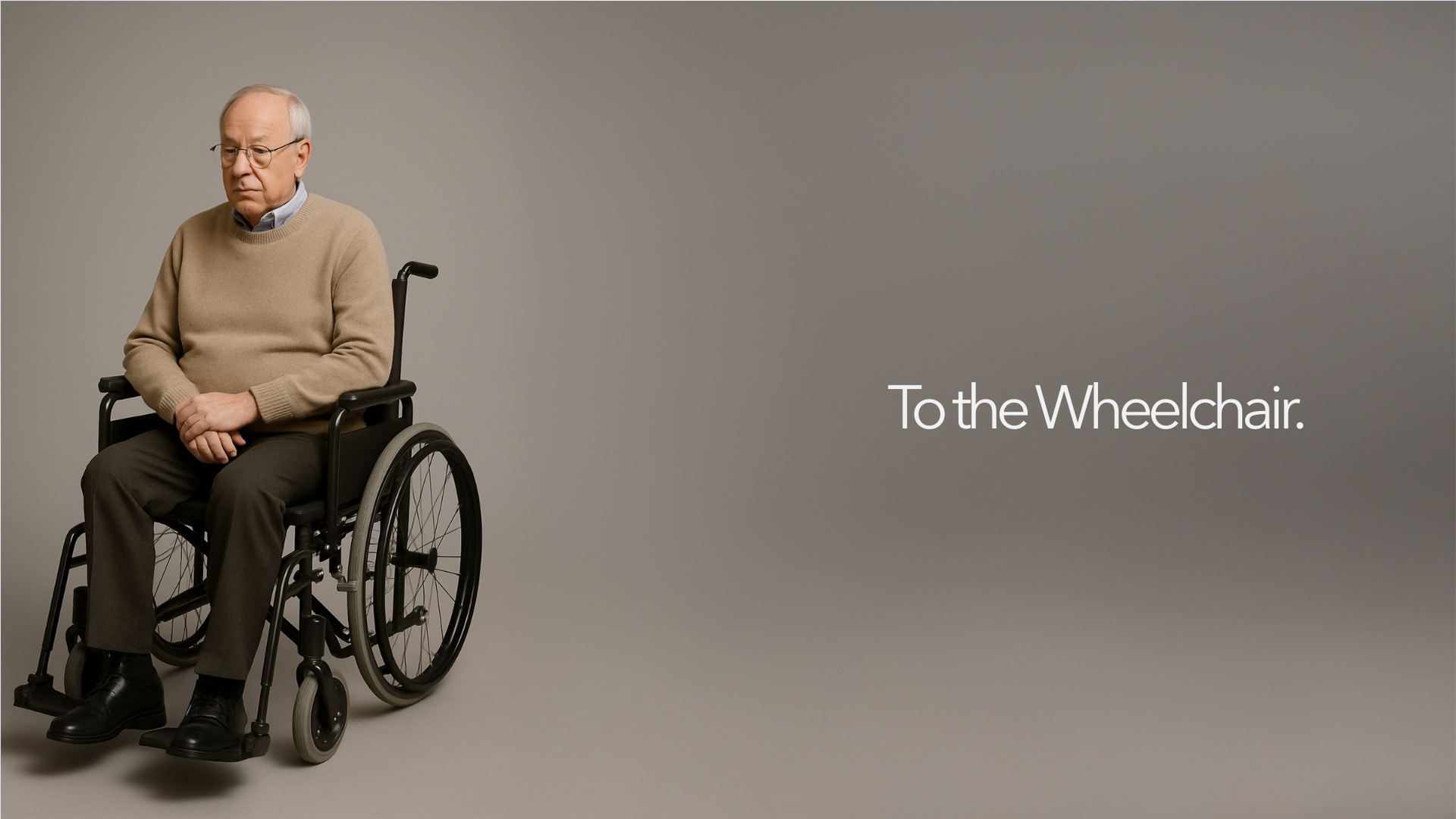
visual value prop. - emotional appeal
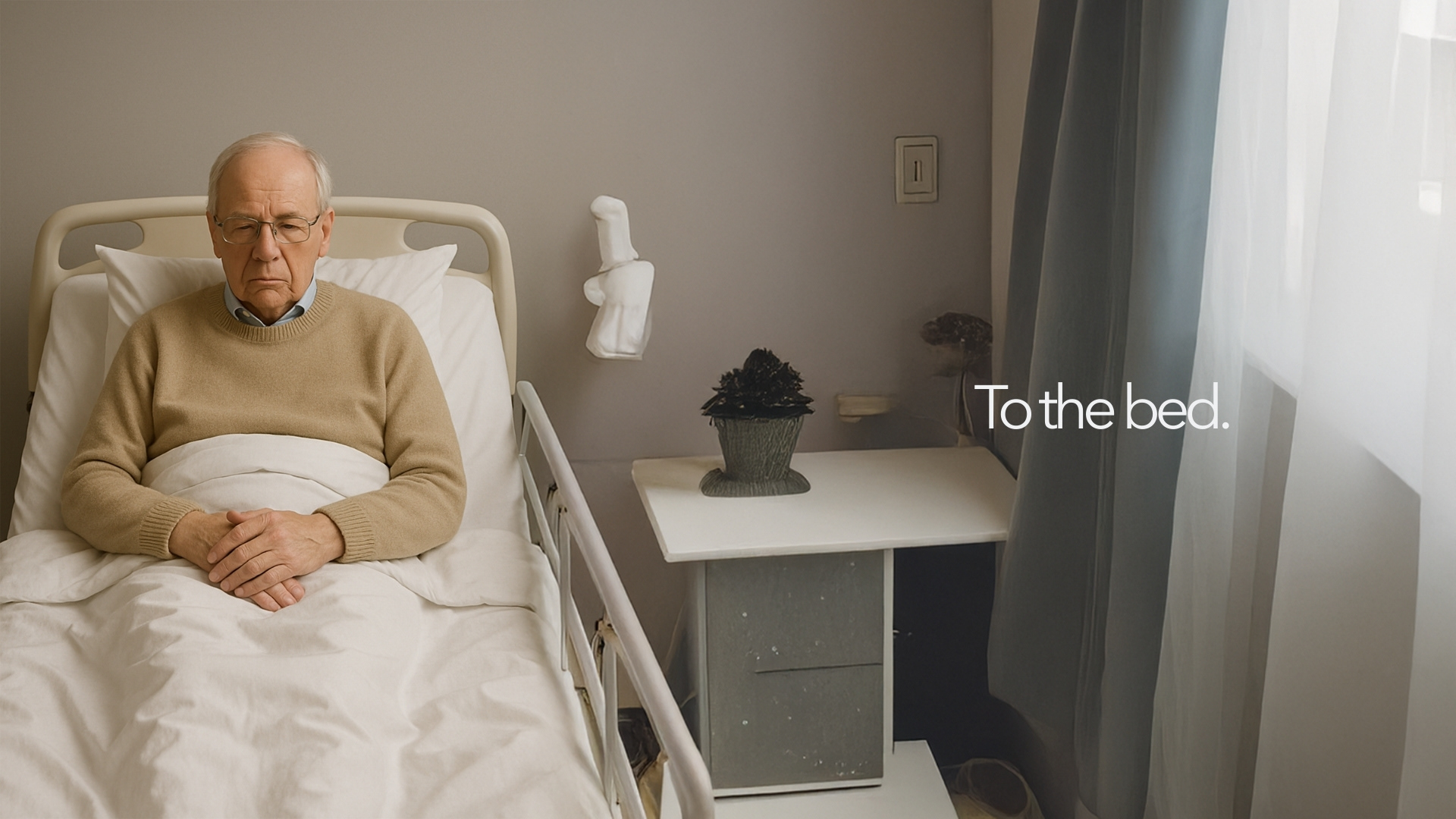
visual value prop. - emotional appeal
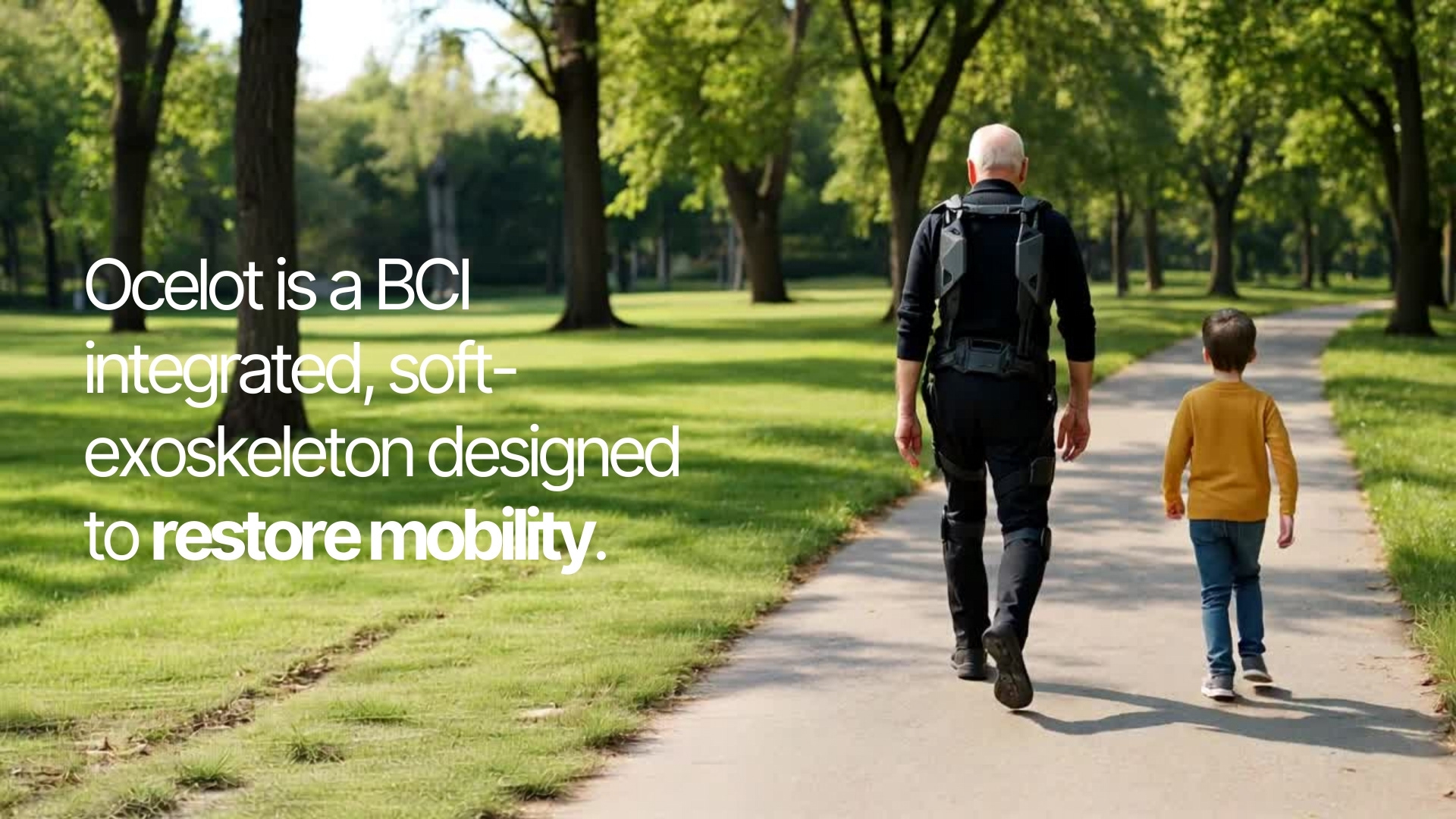
our product (solution)
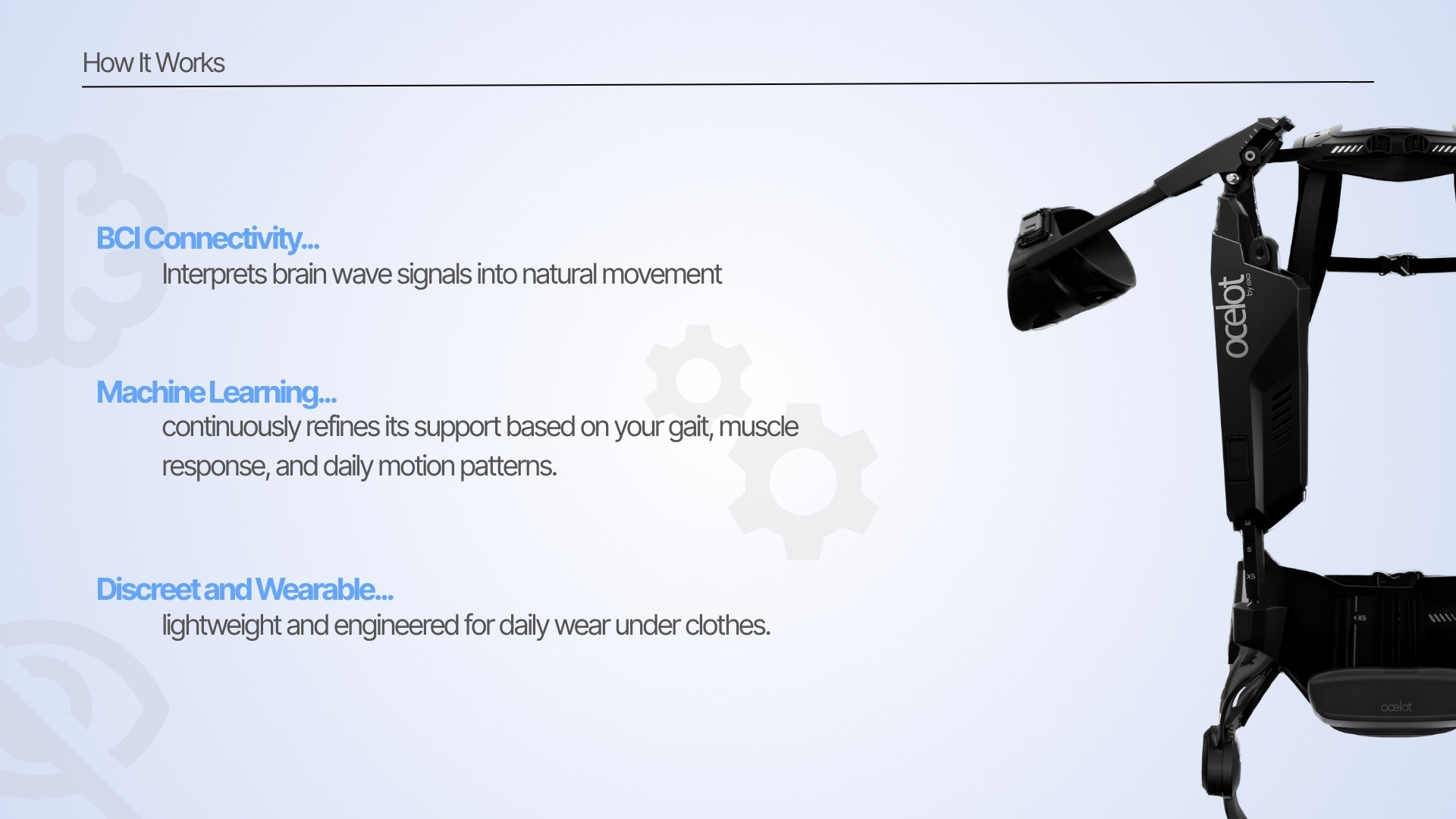
how it works
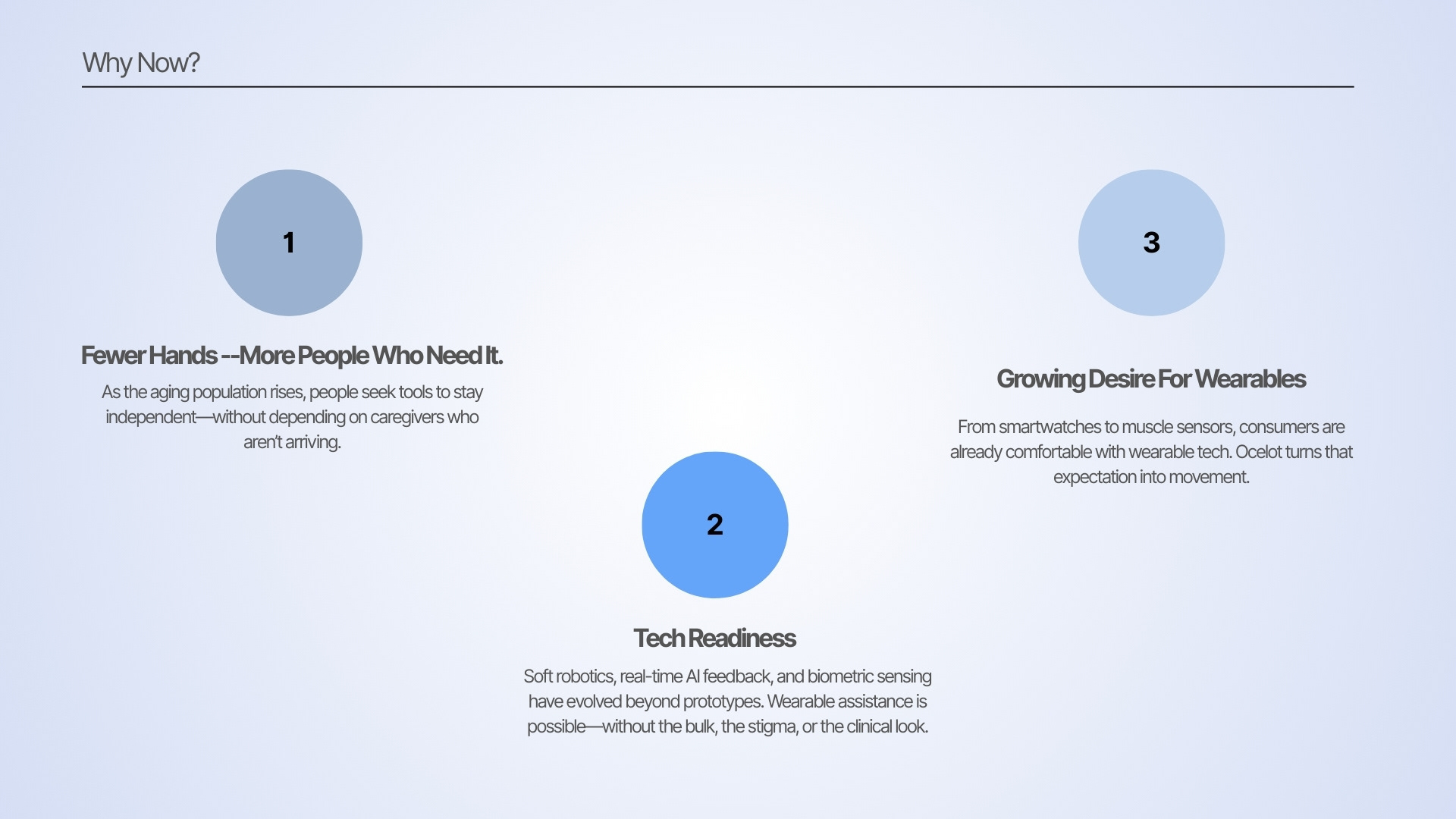
why this will be successful now
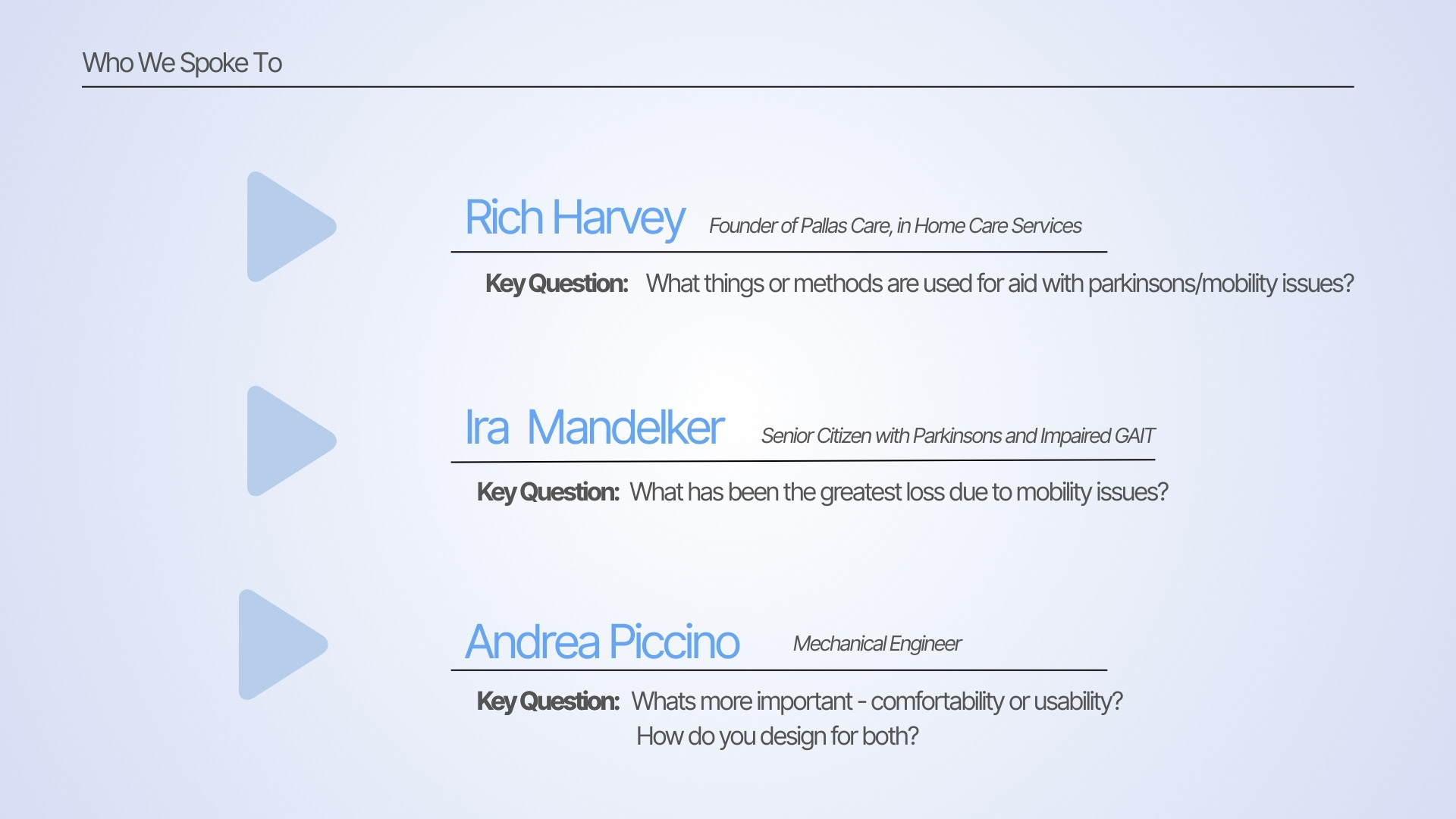
problem validation
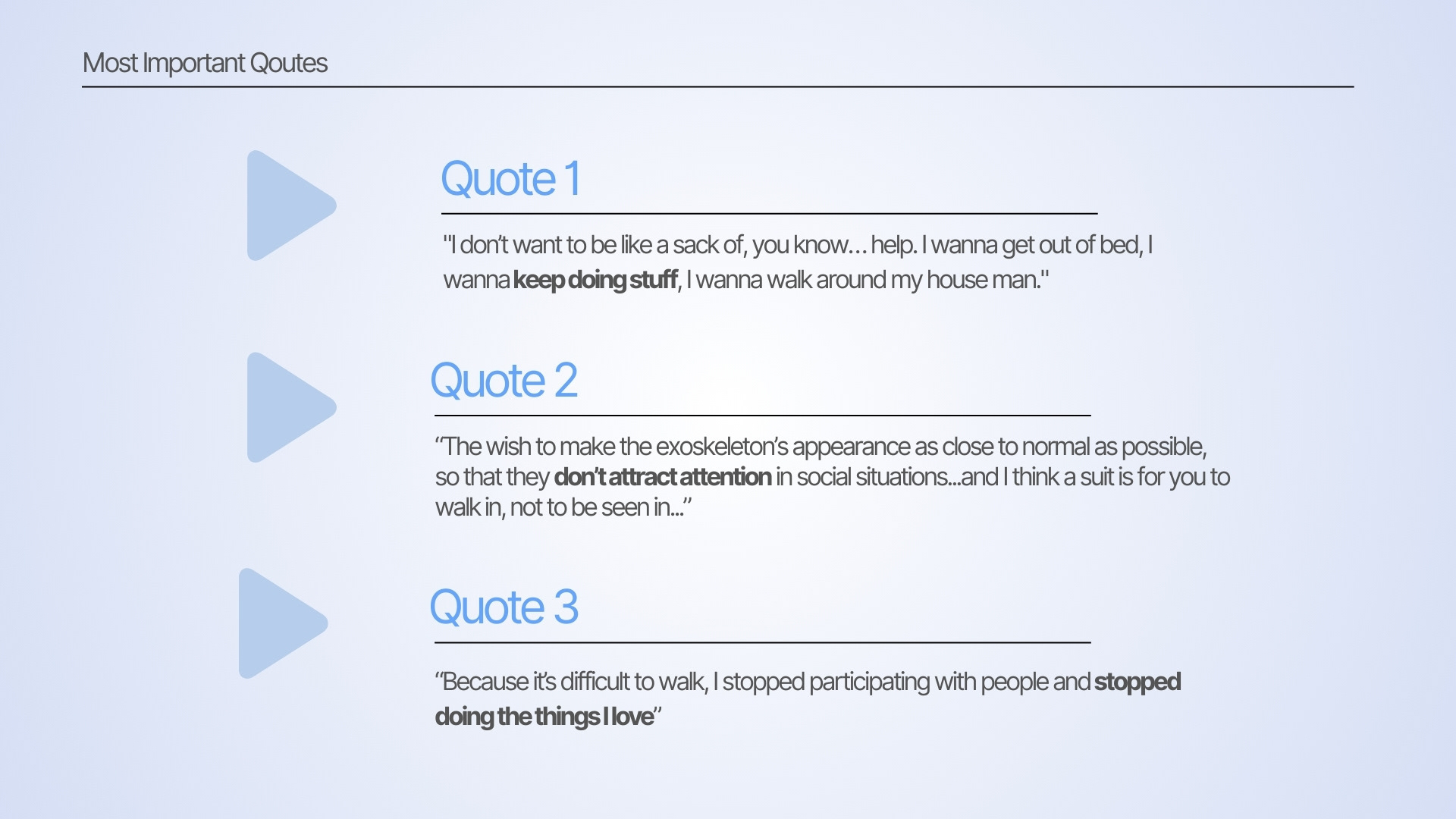
product validation key statements
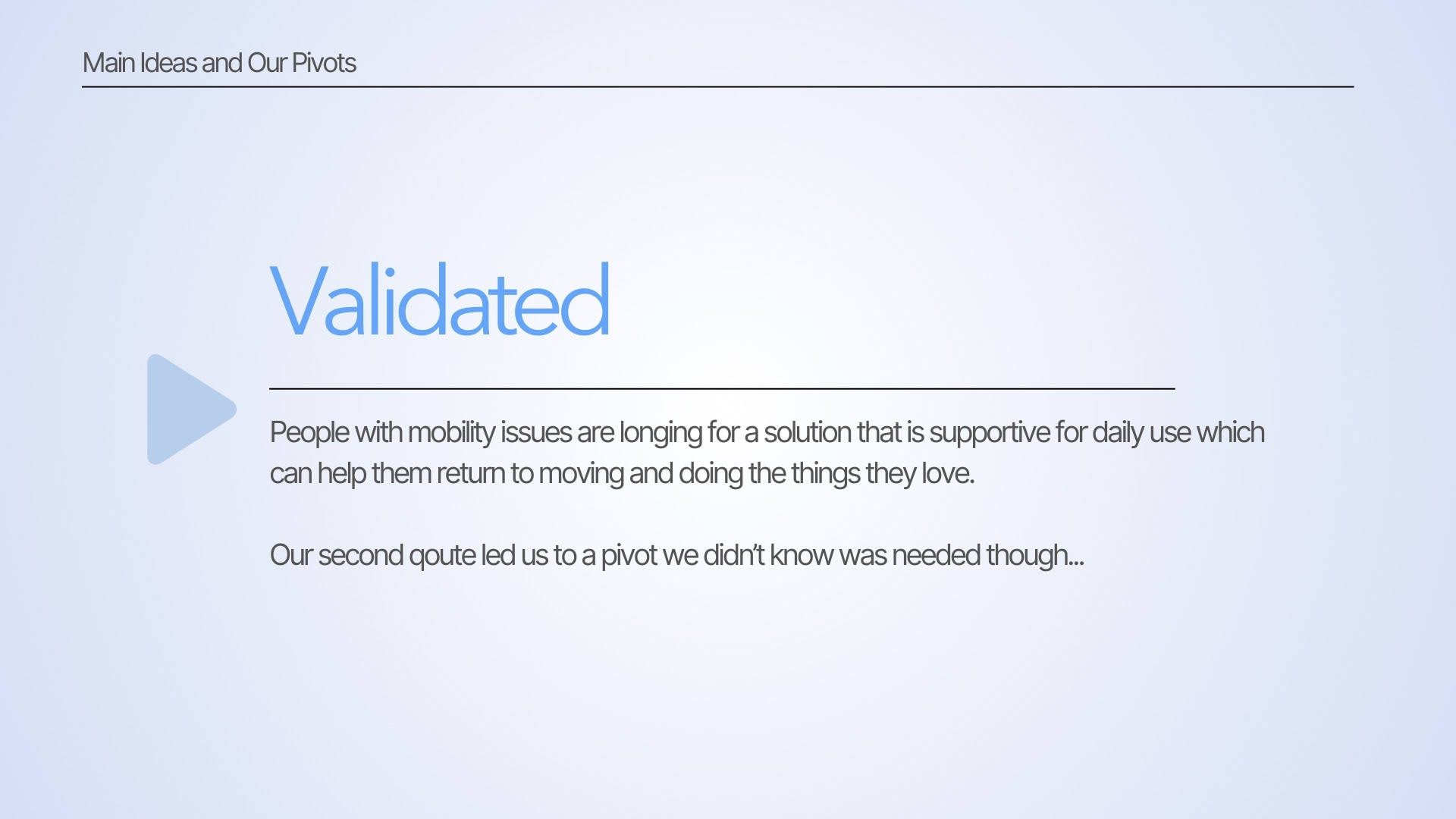
problem validated or not
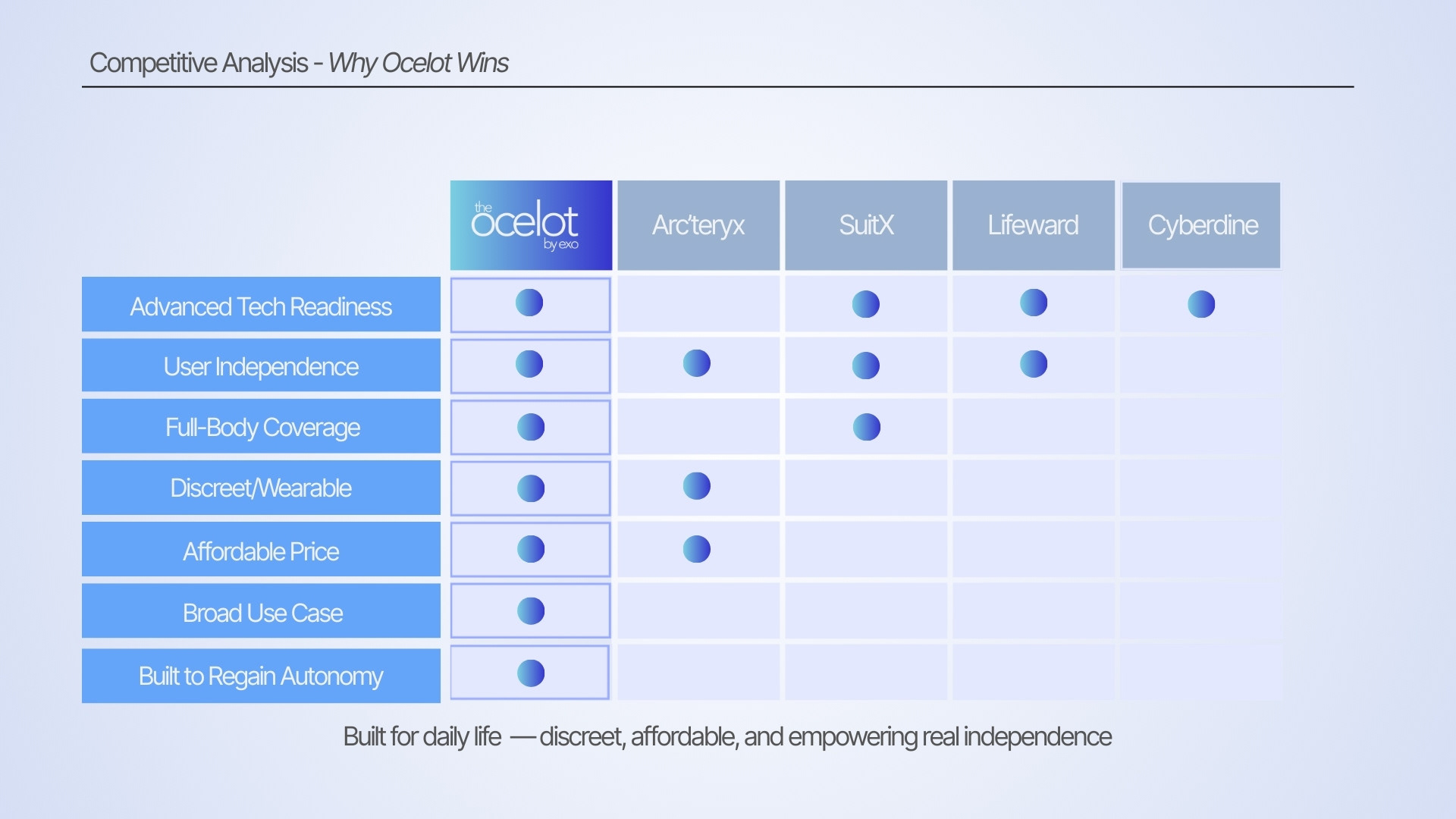
competitive analysis
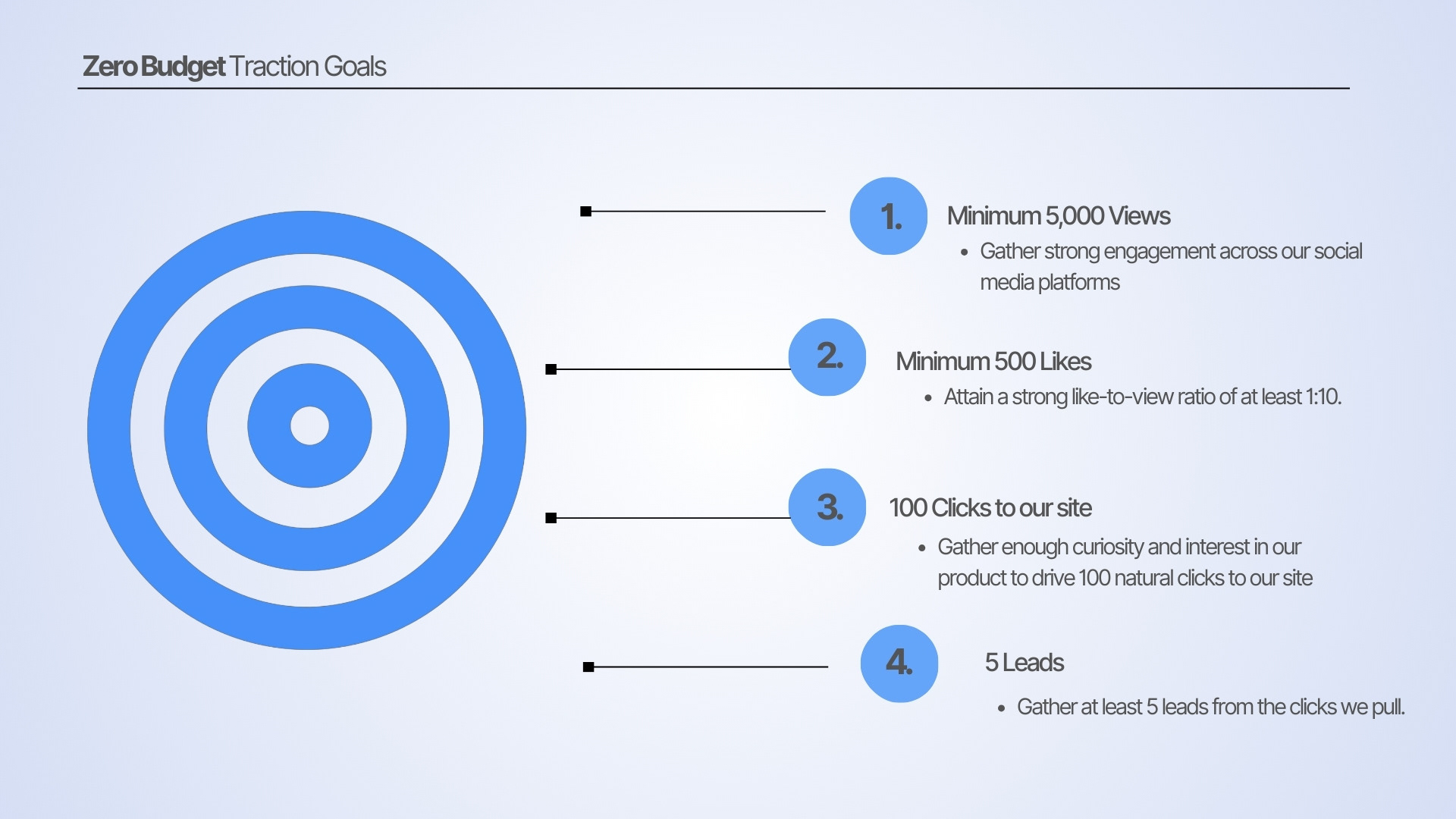
0 cost advertising metric goals
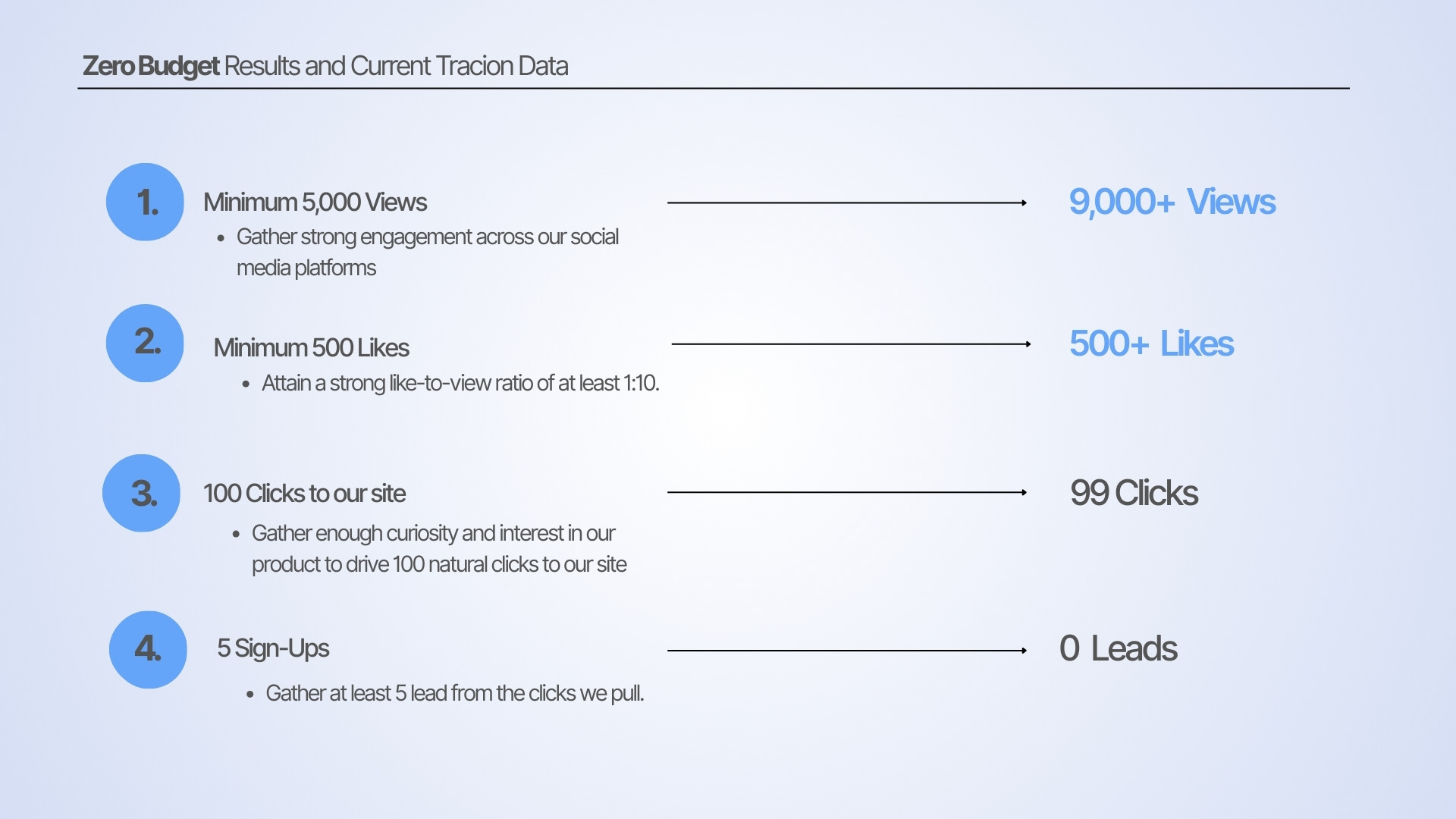
0 cost advertising metric results
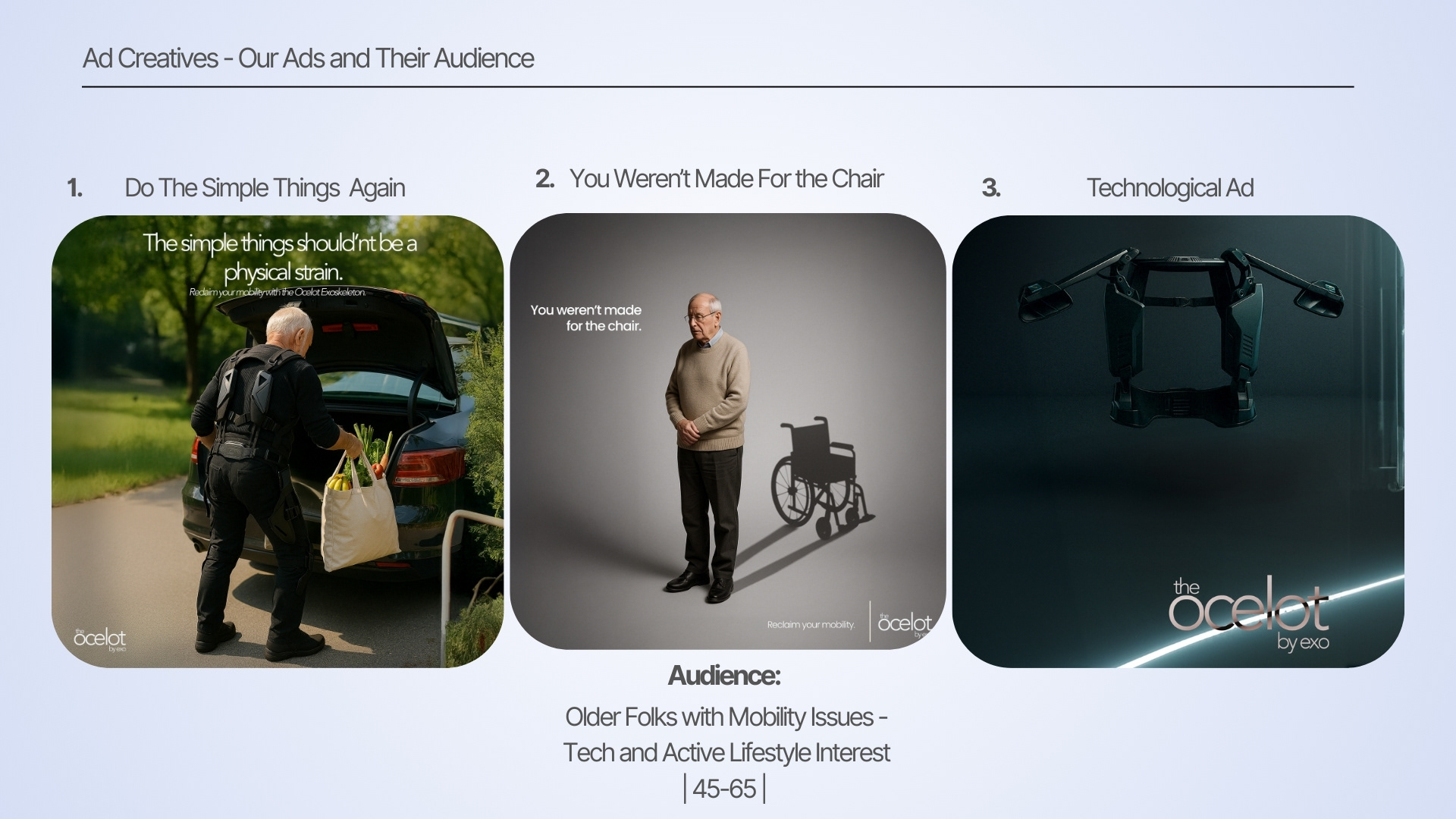
the ads we used
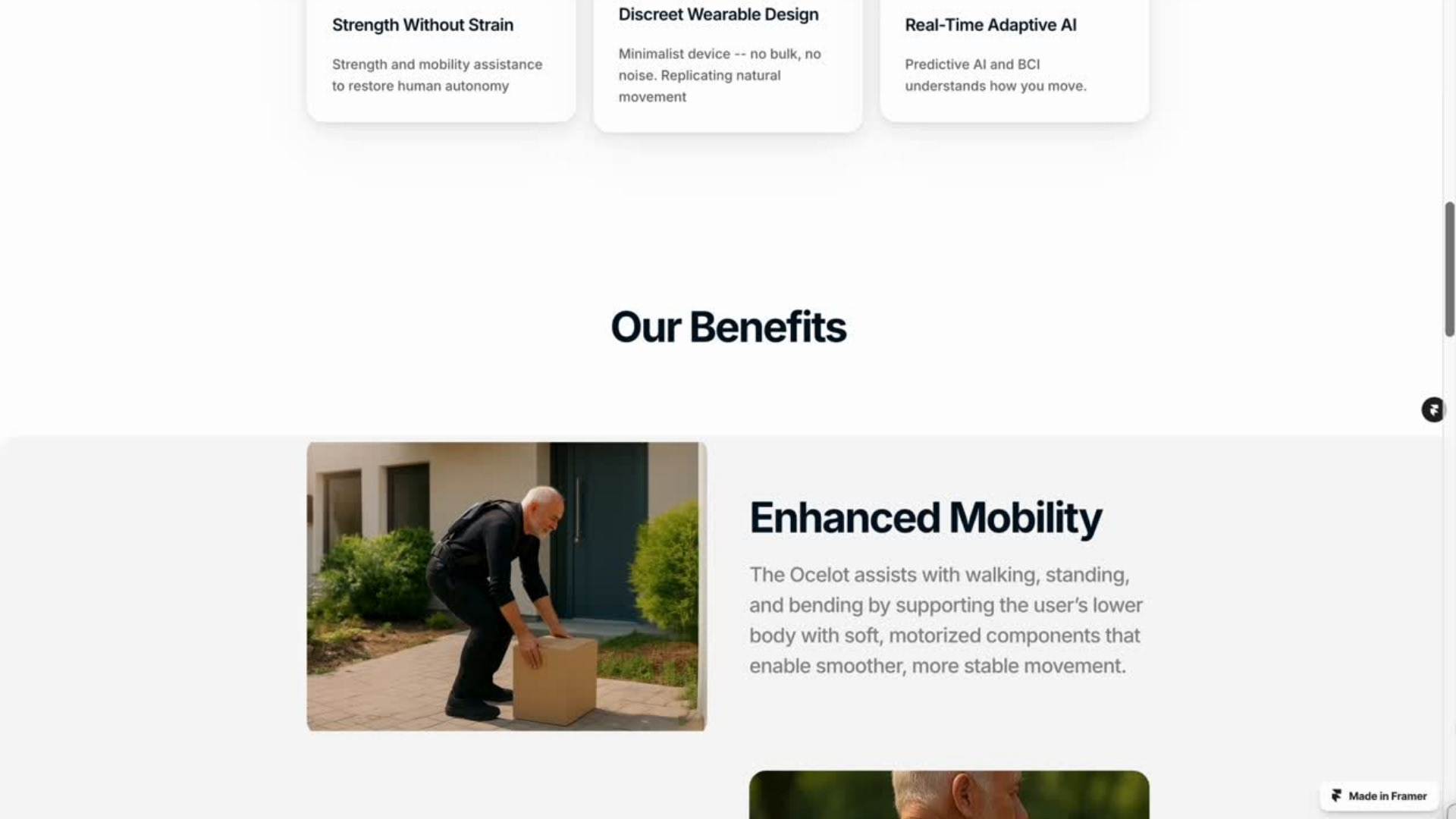
landing page
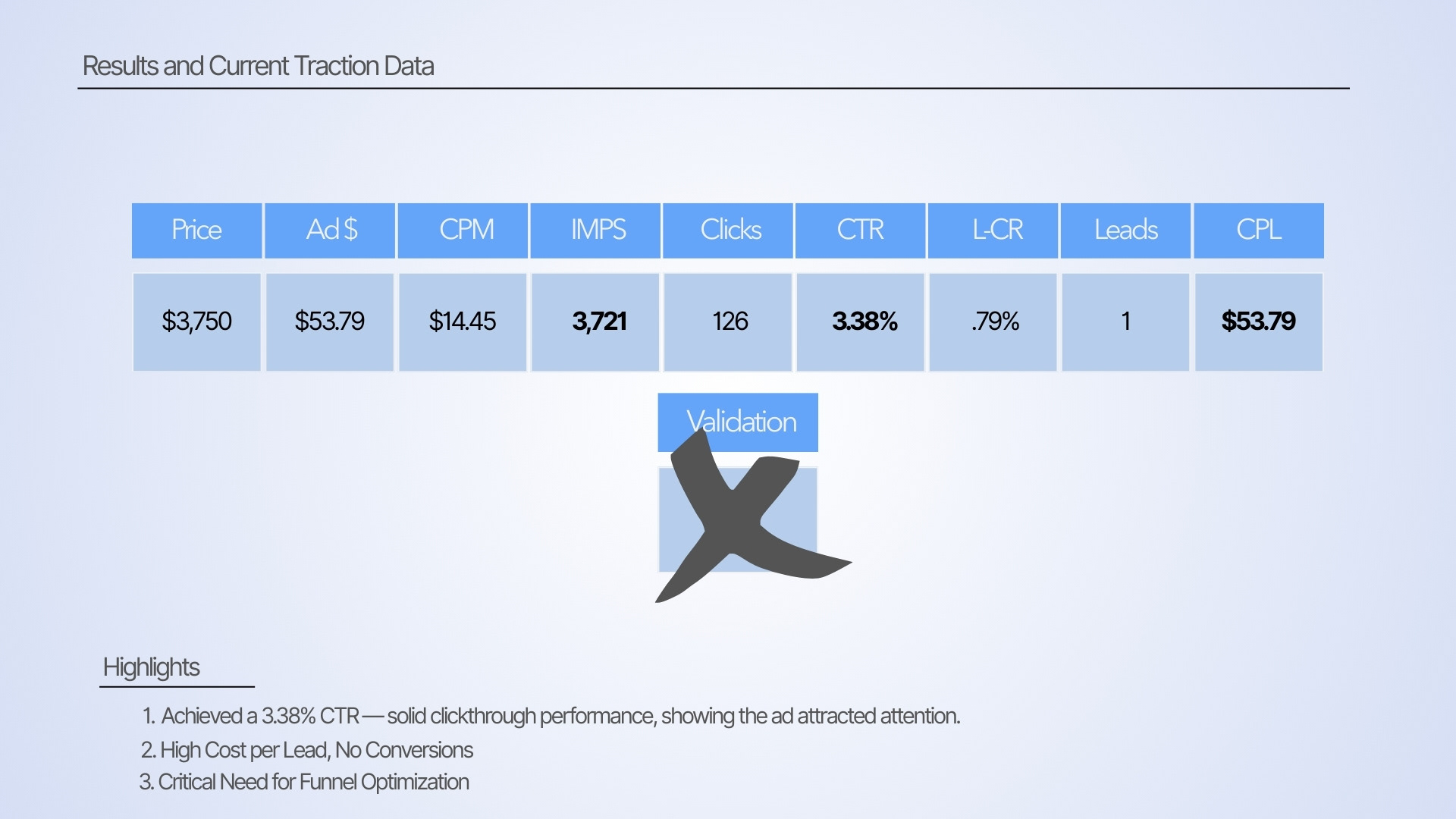
our paid ad metric results
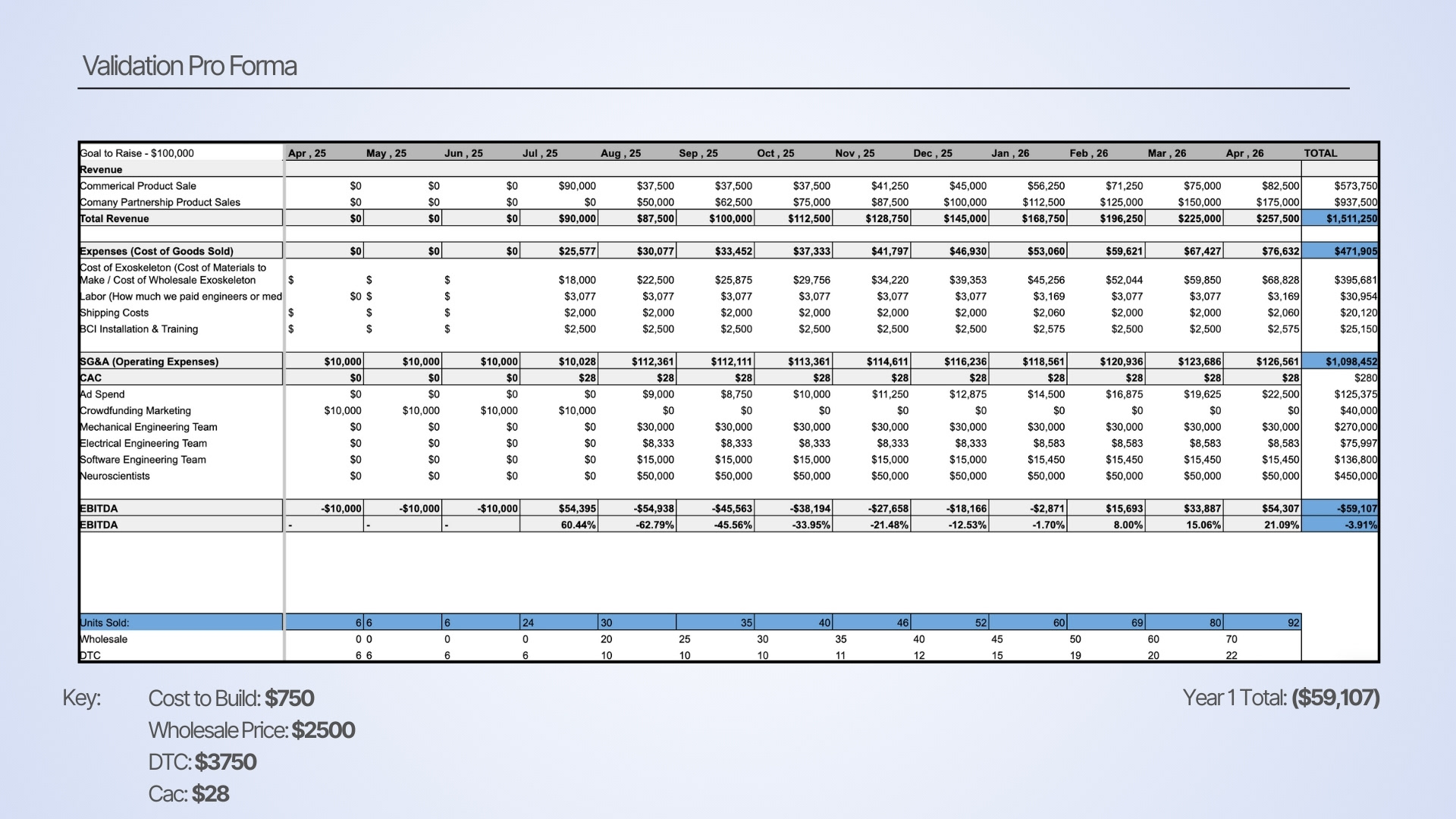
pro forma
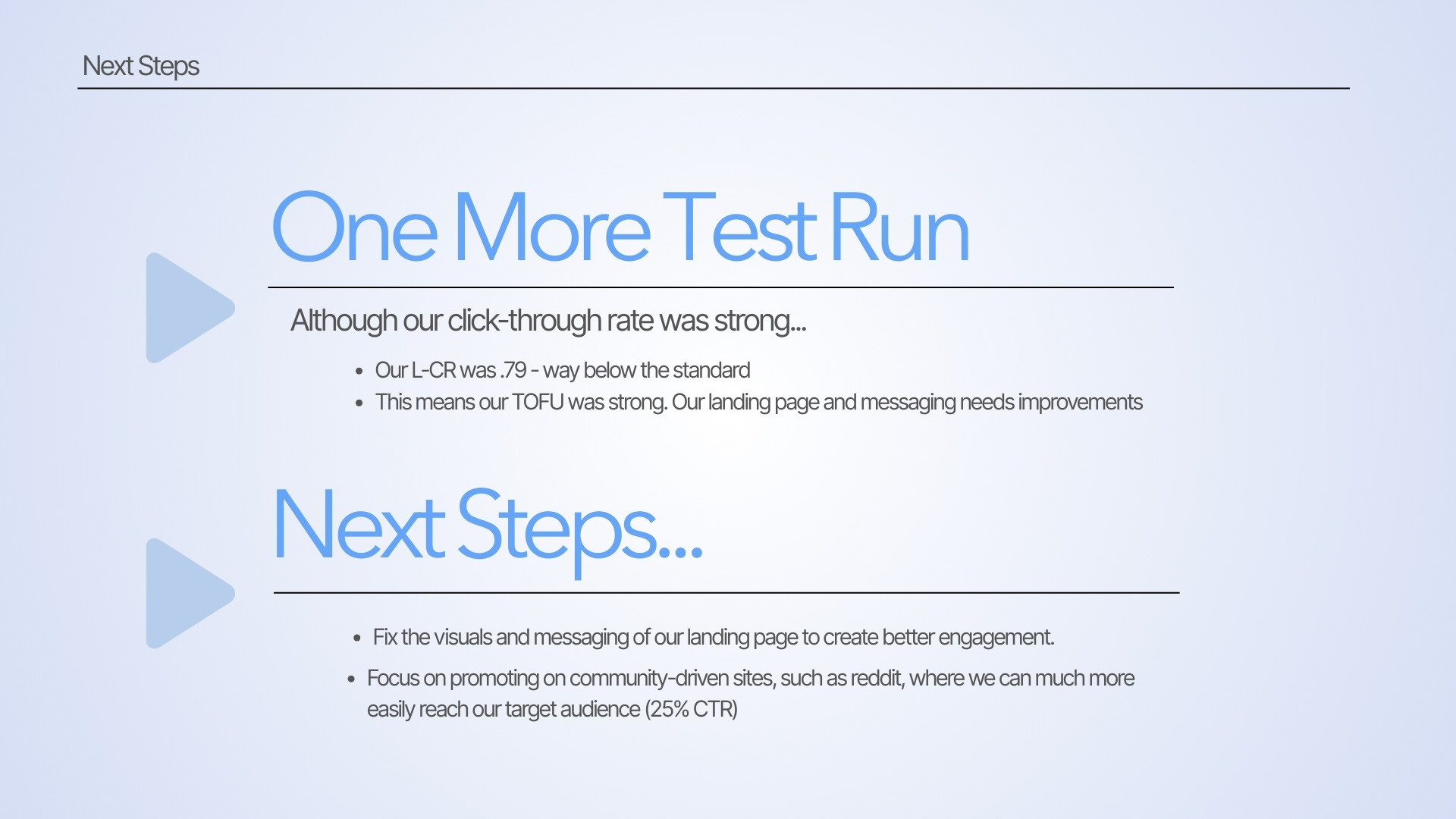
next steps
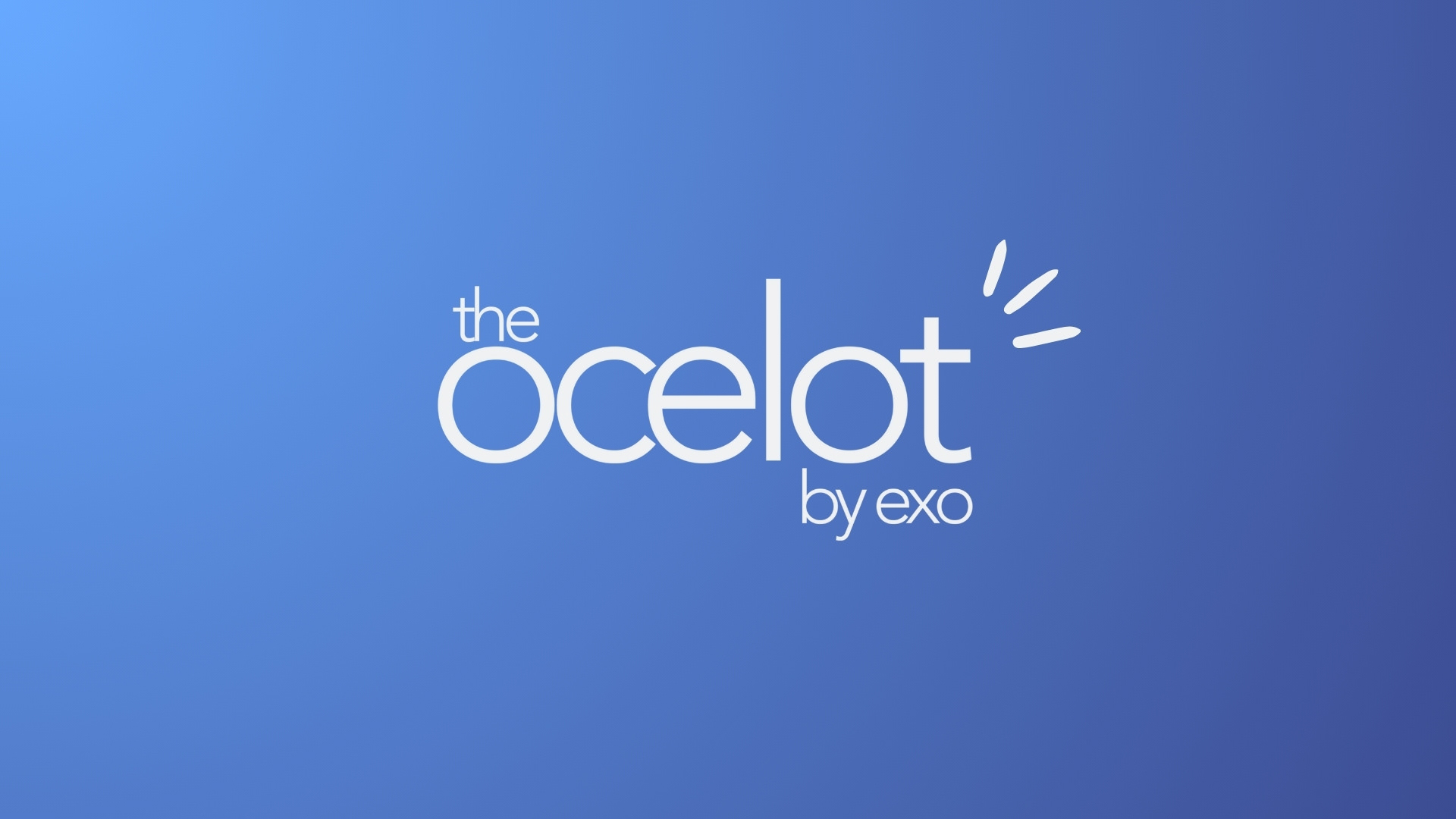
ending
Ocelot by exo
Innovation Case Study & Vision-Based Venture | USC IYA – Case Studies of Innovation
Ocelot is a brain-computer interface–powered soft exoskeleton designed to restore independence and dignity for aging adults with mobility impairments. Unlike traditional medical exosuits, Ocelot is discreet, lightweight, and designed for daily use—worn under clothes and controlled by thought. It represents a future where assistive technology is intuitive, invisible, and empowering.
The project:
This was a vision-based case study exploring innovation at the intersection of neurotech, soft robotics, and elder care. We developed a future-facing concept, validated user sentiment through interviews, and tested market curiosity through zero-budget ad campaigns and traction funnels.
This was a vision-based case study exploring innovation at the intersection of neurotech, soft robotics, and elder care. We developed a future-facing concept, validated user sentiment through interviews, and tested market curiosity through zero-budget ad campaigns and traction funnels.
My role:
- Led research on brain-computer interfaces and real-world applications in mobility
- Managed Facebook ad campaigns (audience targeting, A/B creatives, metrics analysis)
- Oversaw project timeline and collaboration as a product/project manager
- Delivered the final pitch and presented user insights, market context, and growth strategy
Focus areas:
- Neurotechnology research and assistive tech trends
- Ad campaign execution and clickthrough analysis (3.38% CTR, 9k+ views)
- Human-centered product framing rooted in emotional independence
- Financial forecasting (CAC, pricing strategy, Year 1 cost projections)
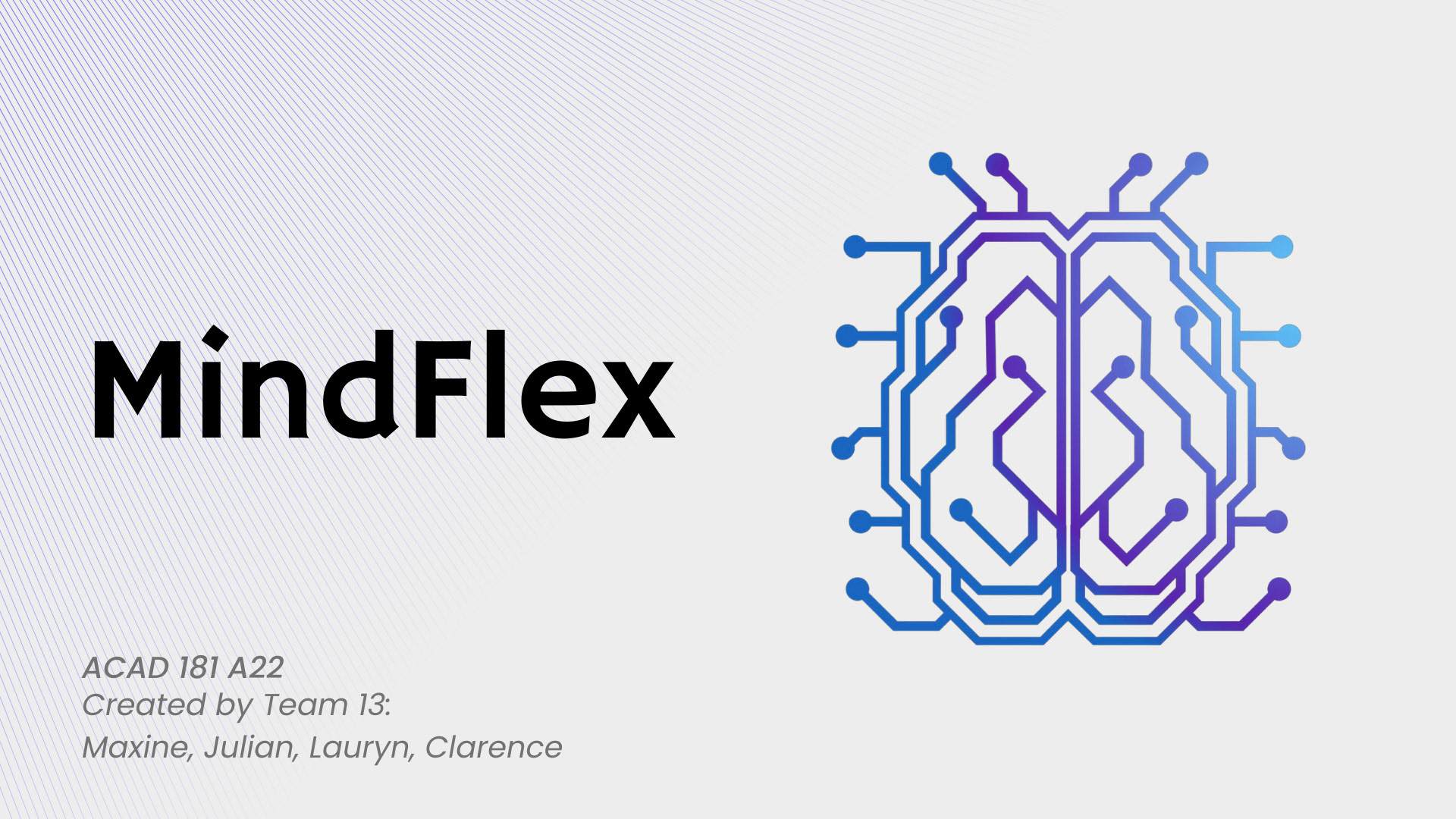
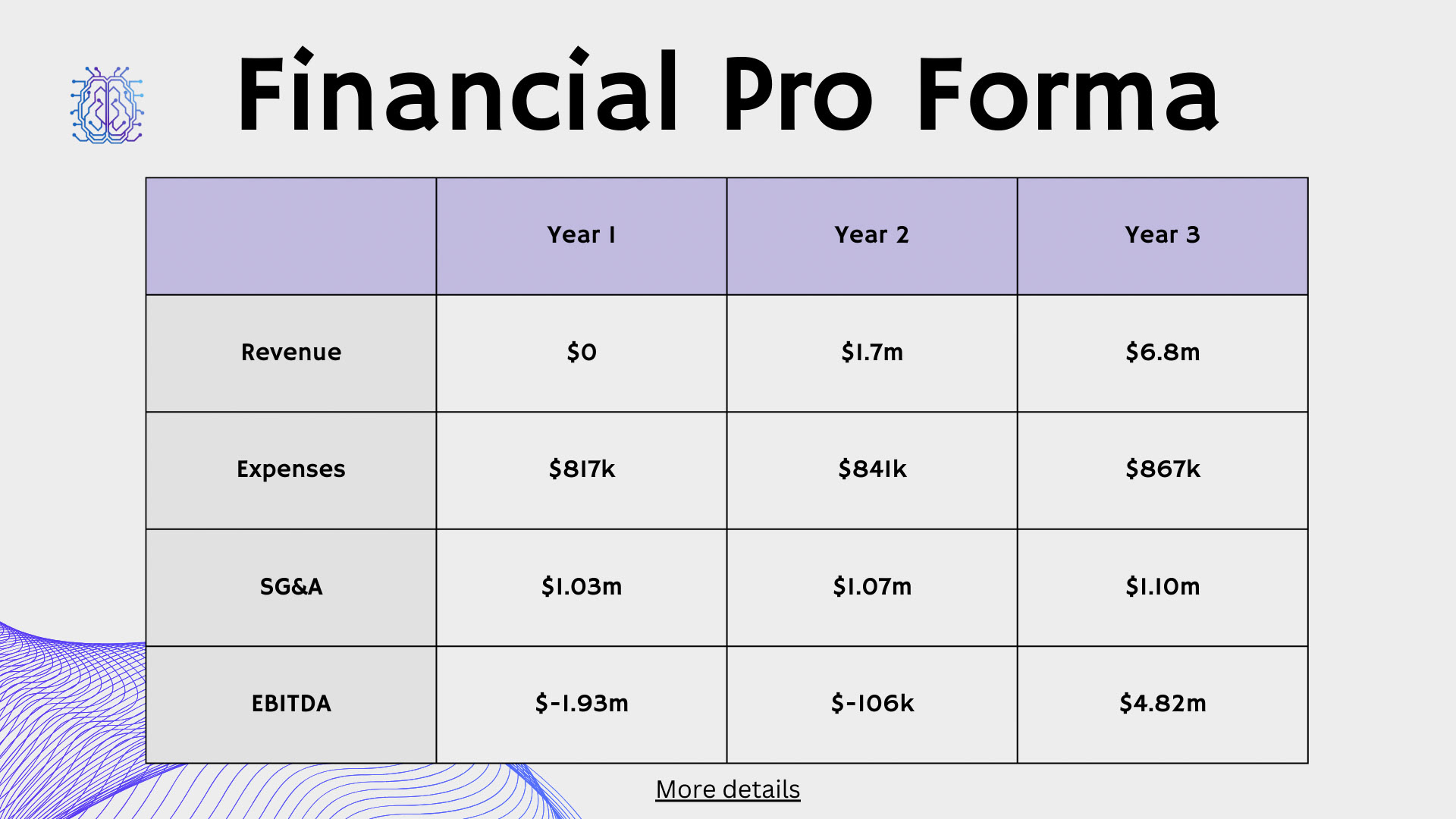
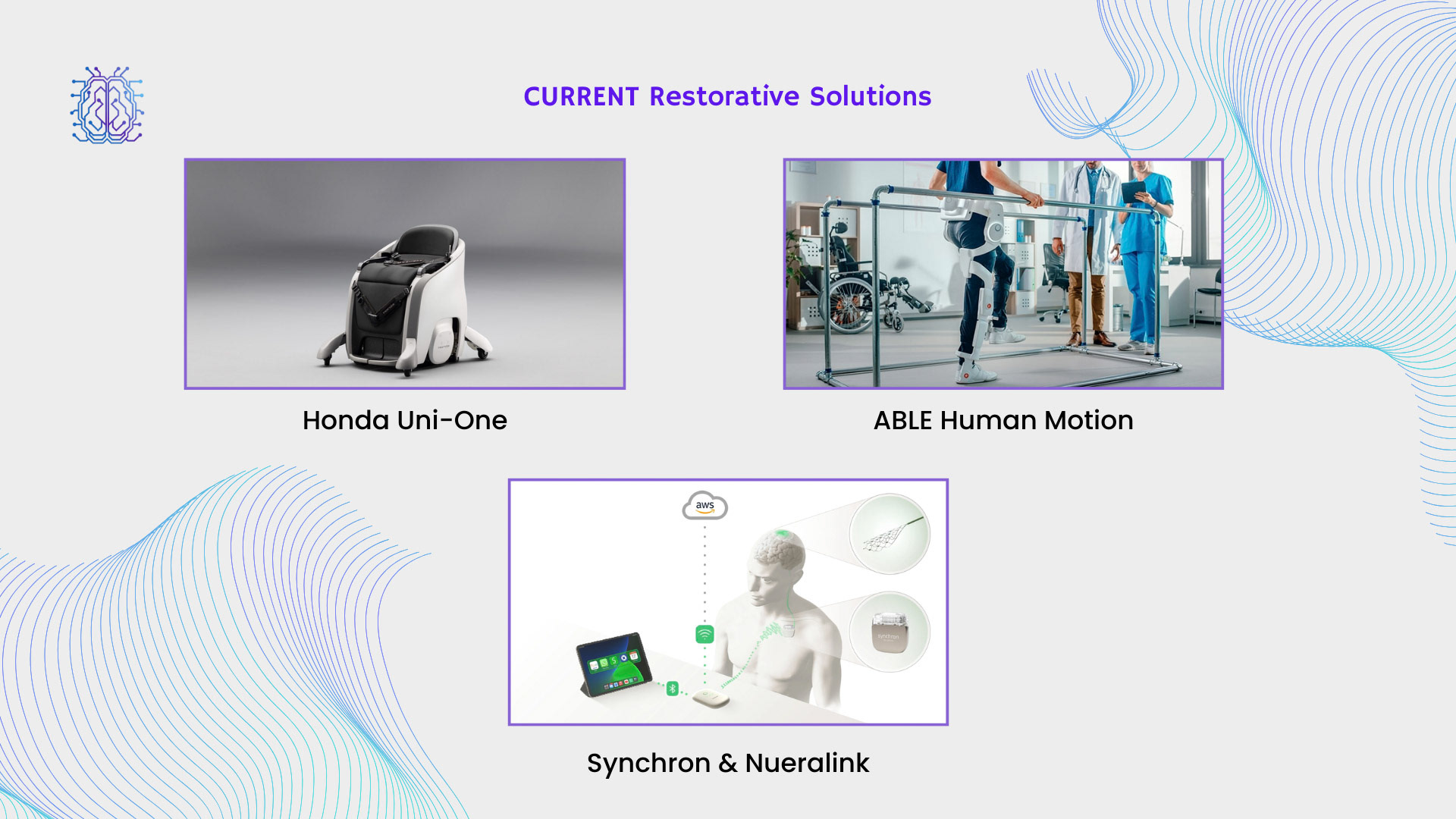
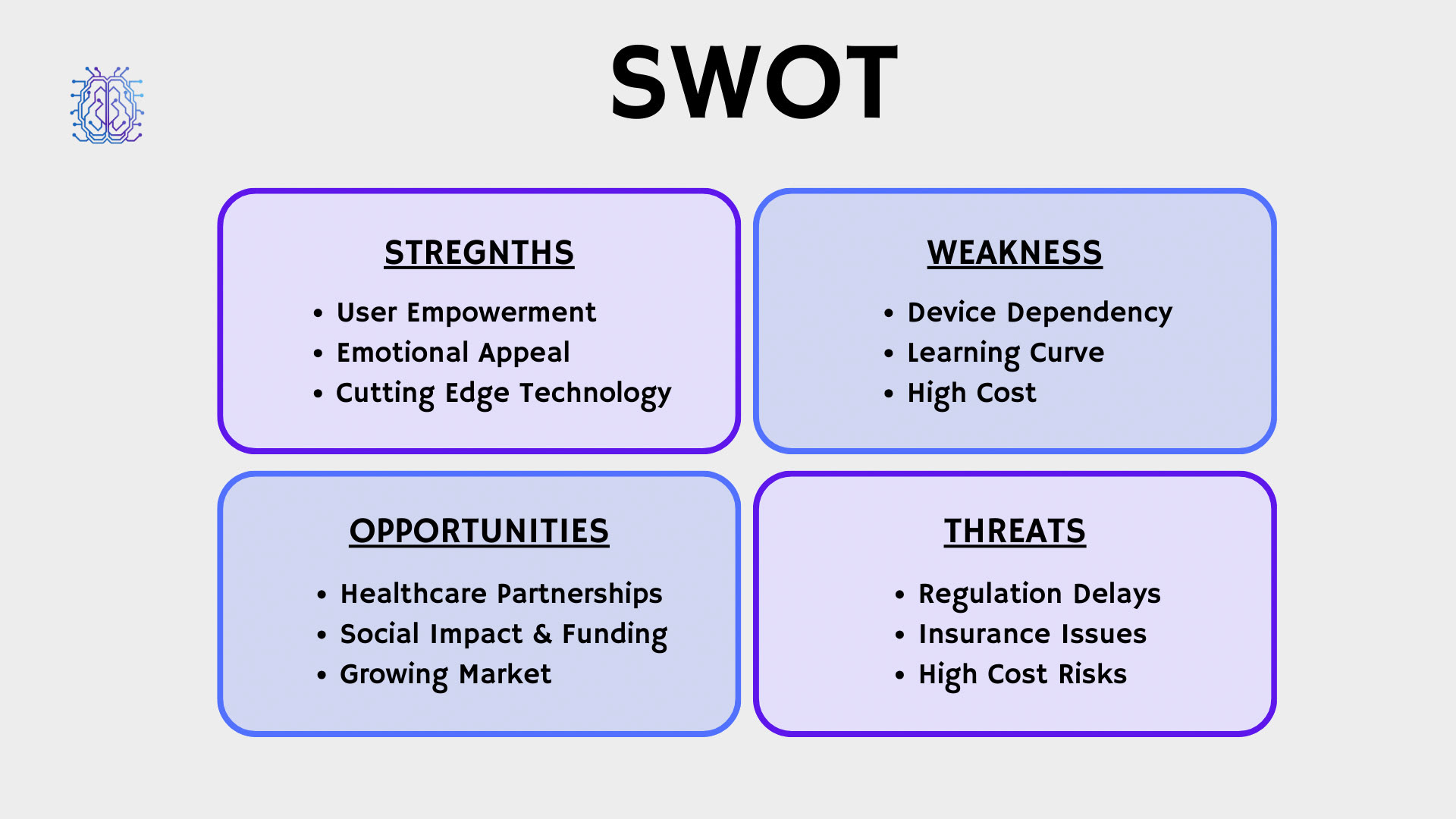
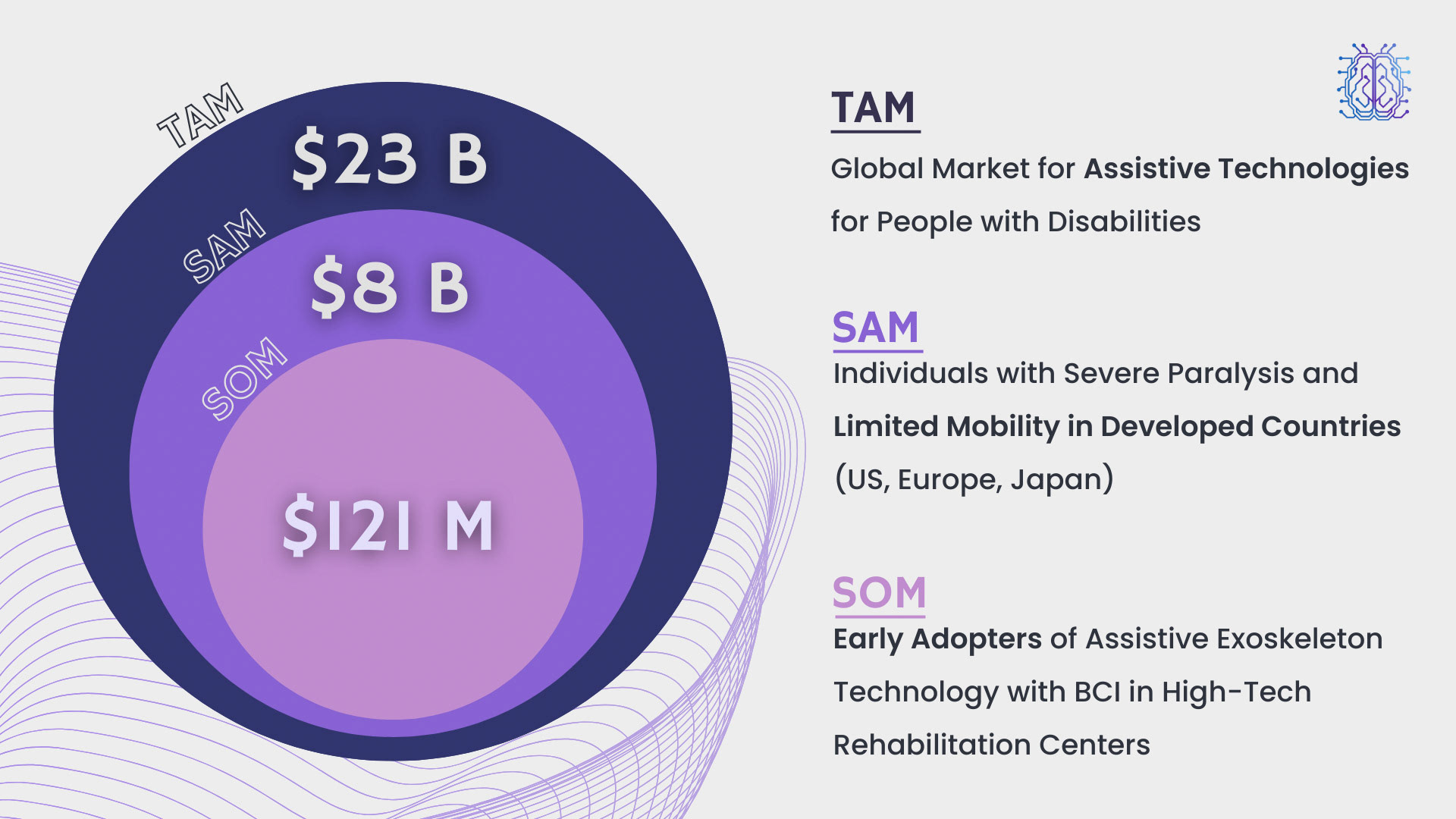
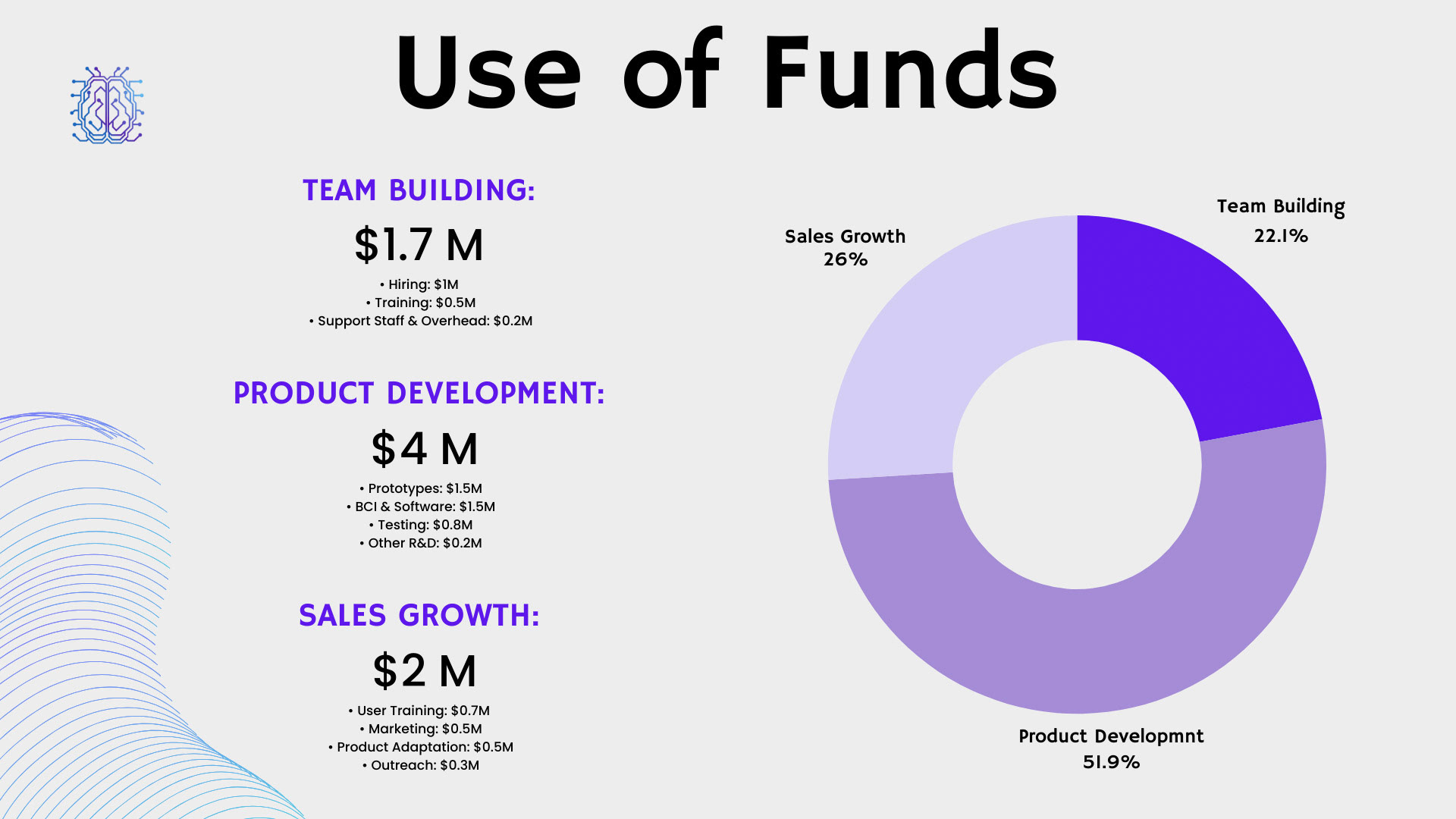
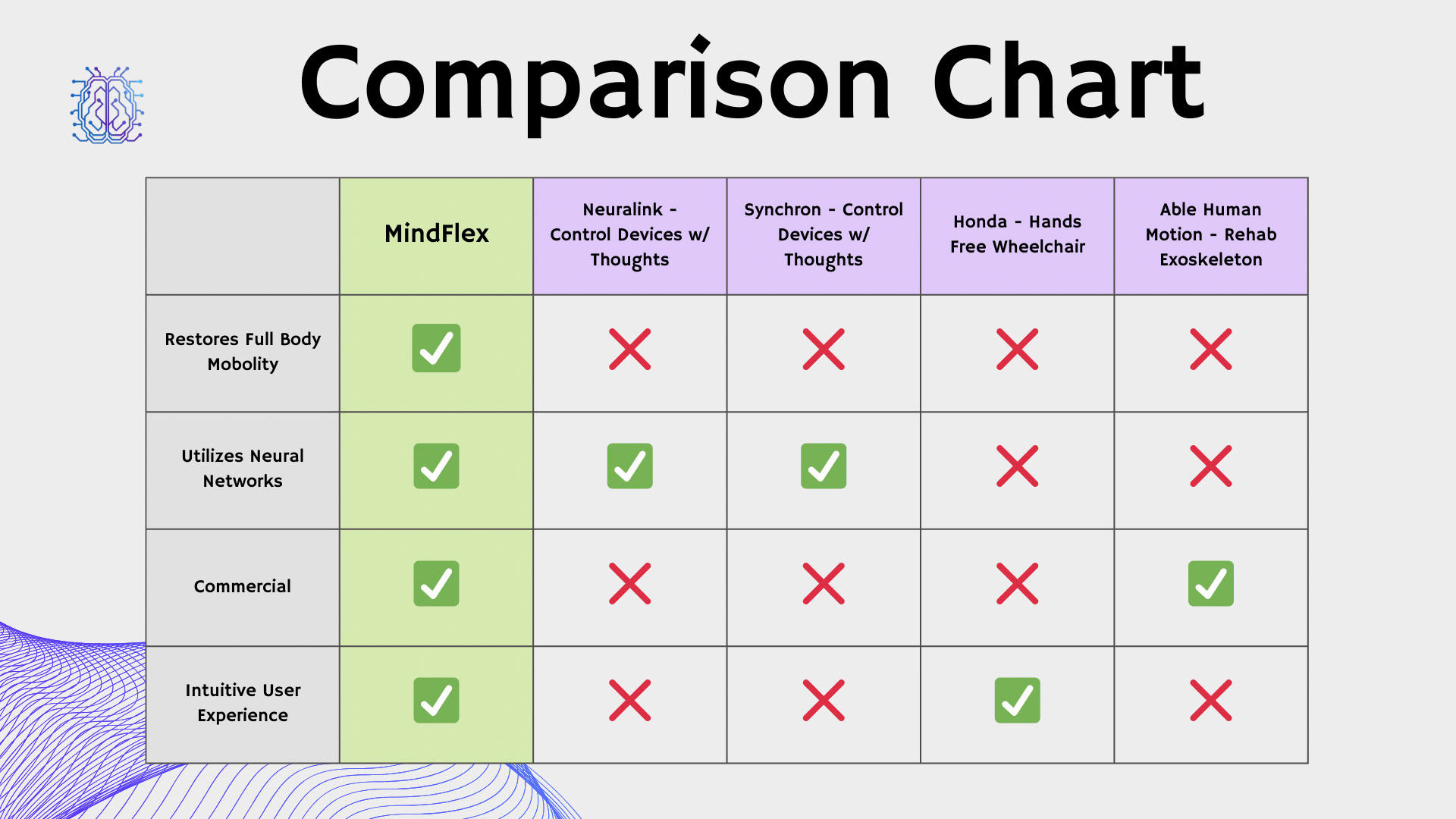
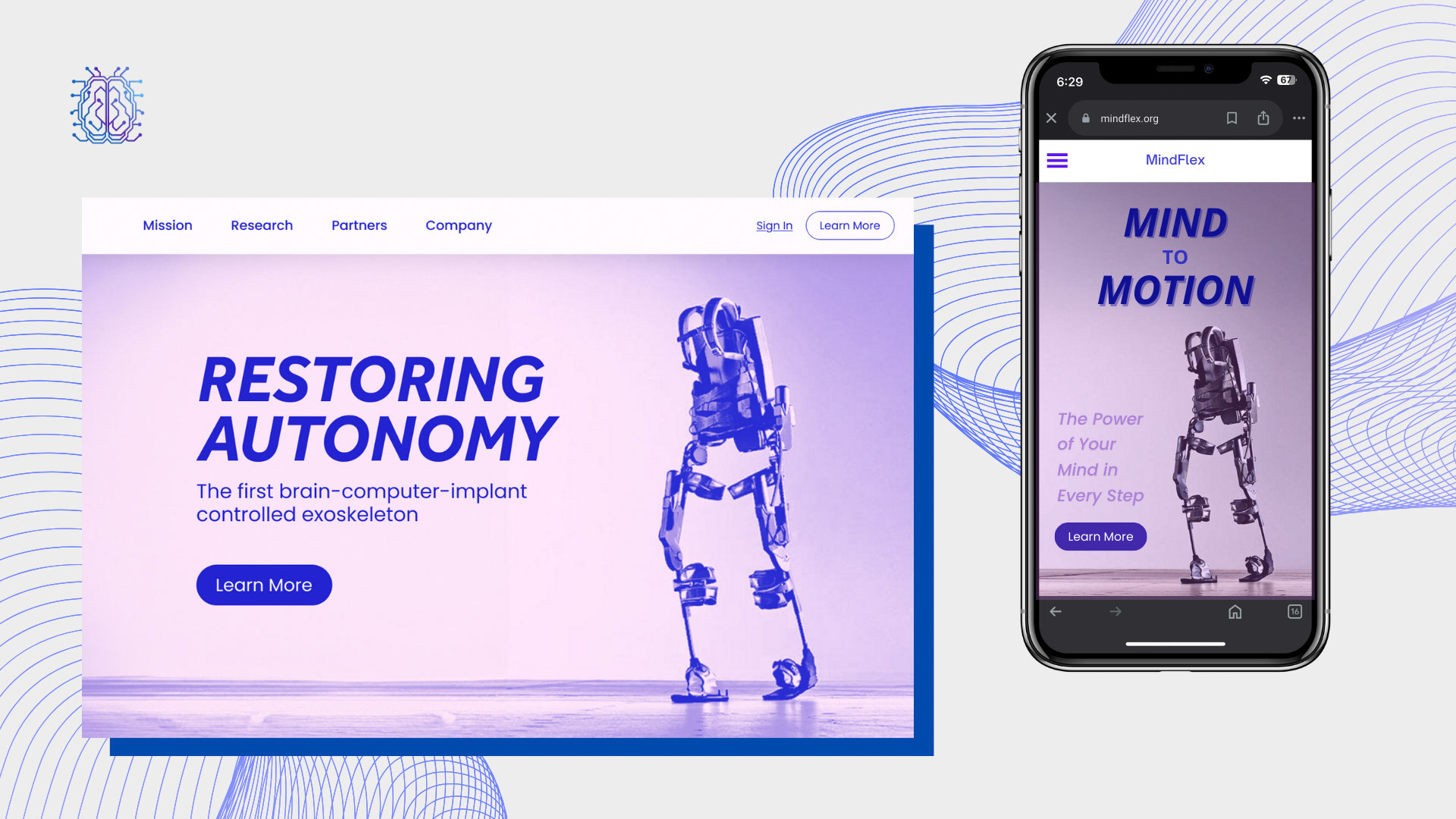
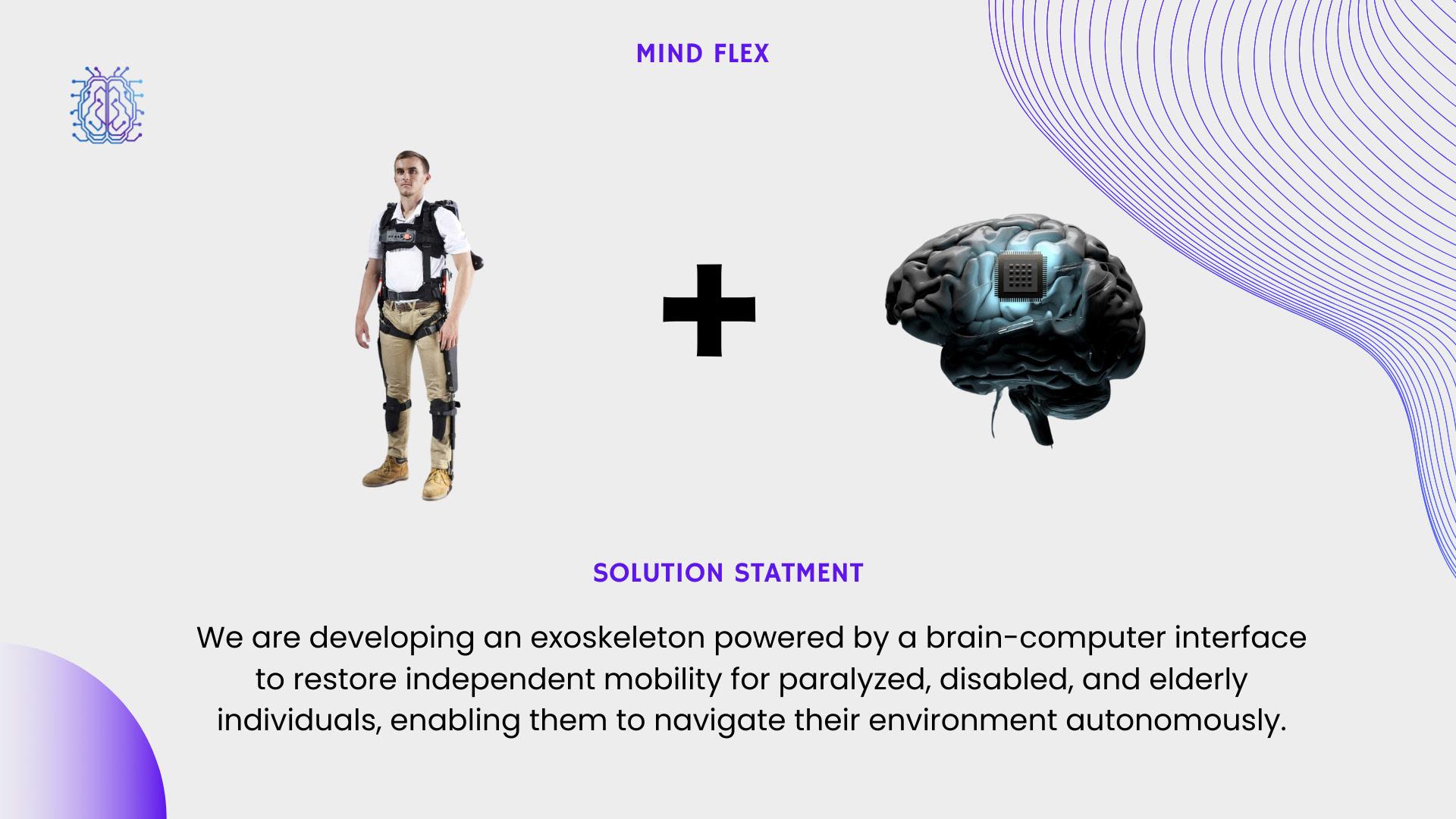
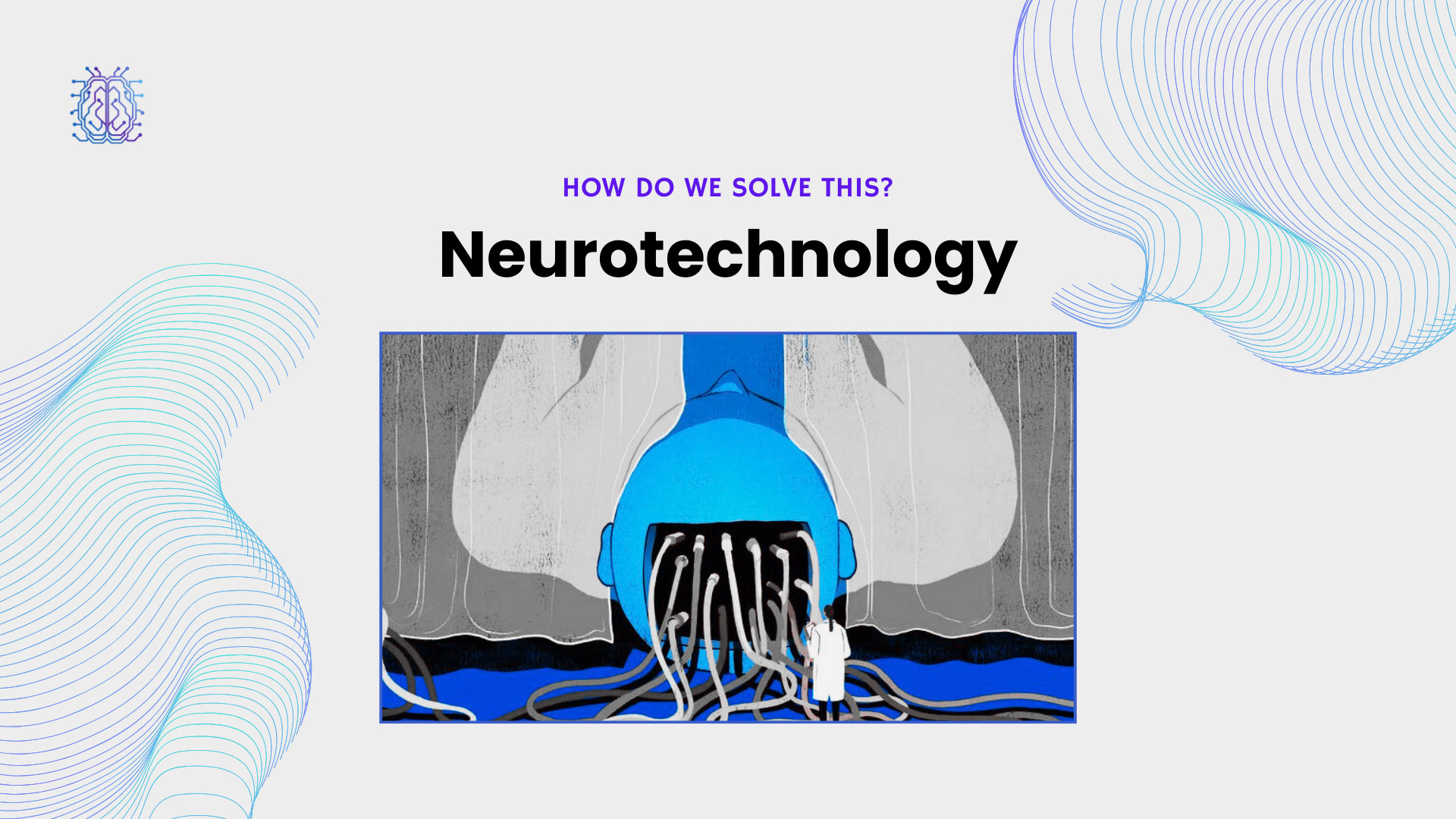
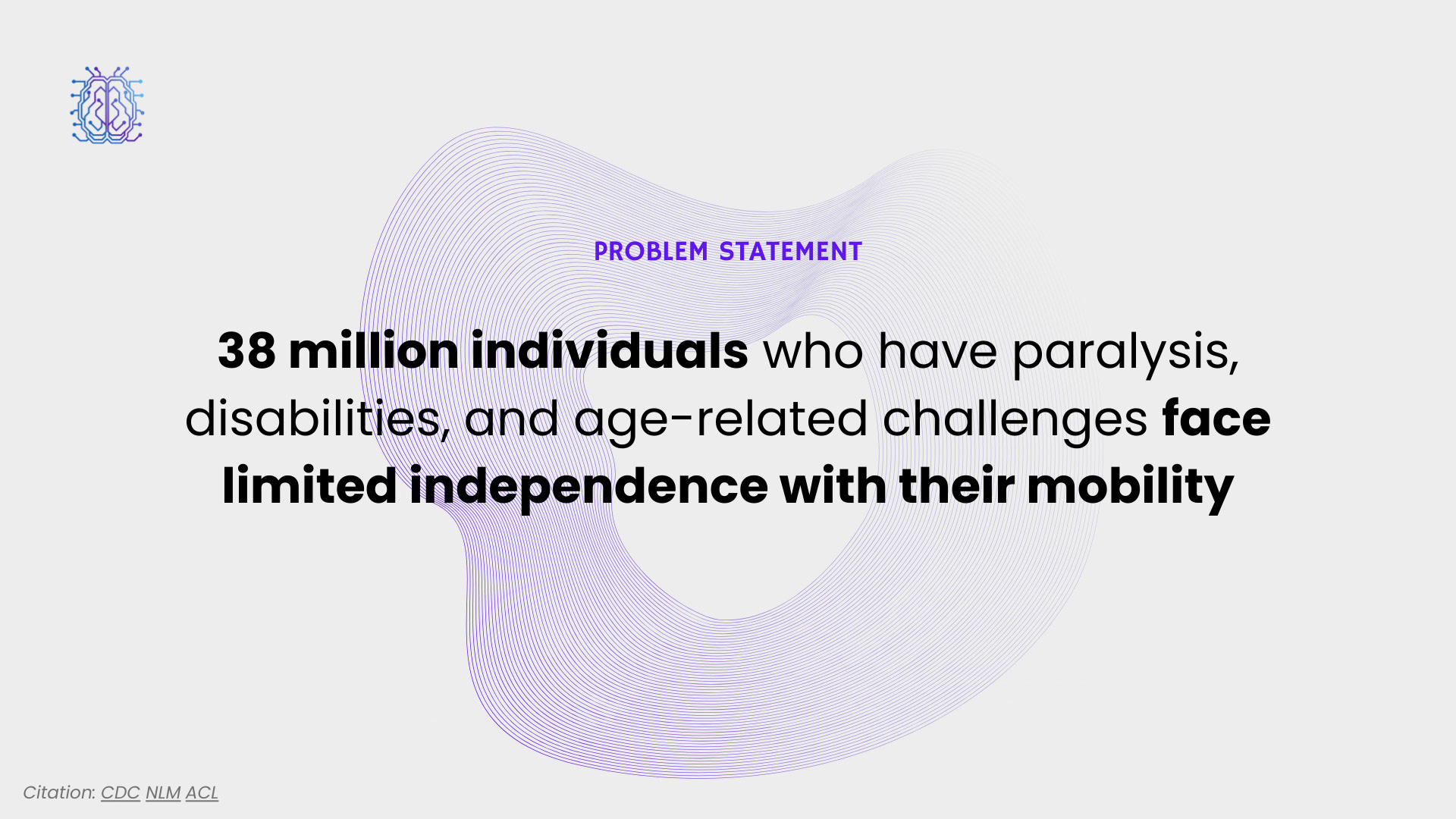
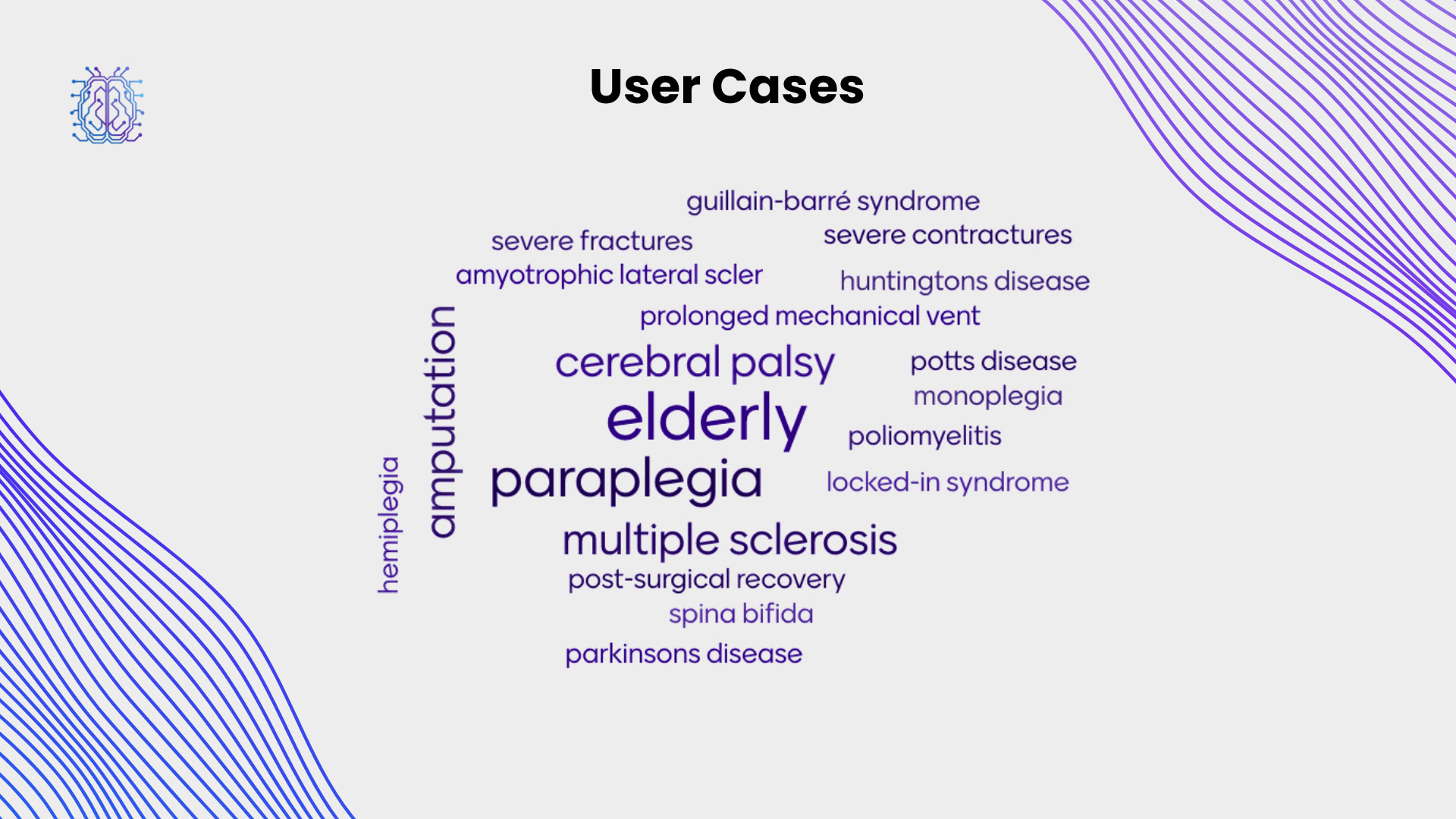
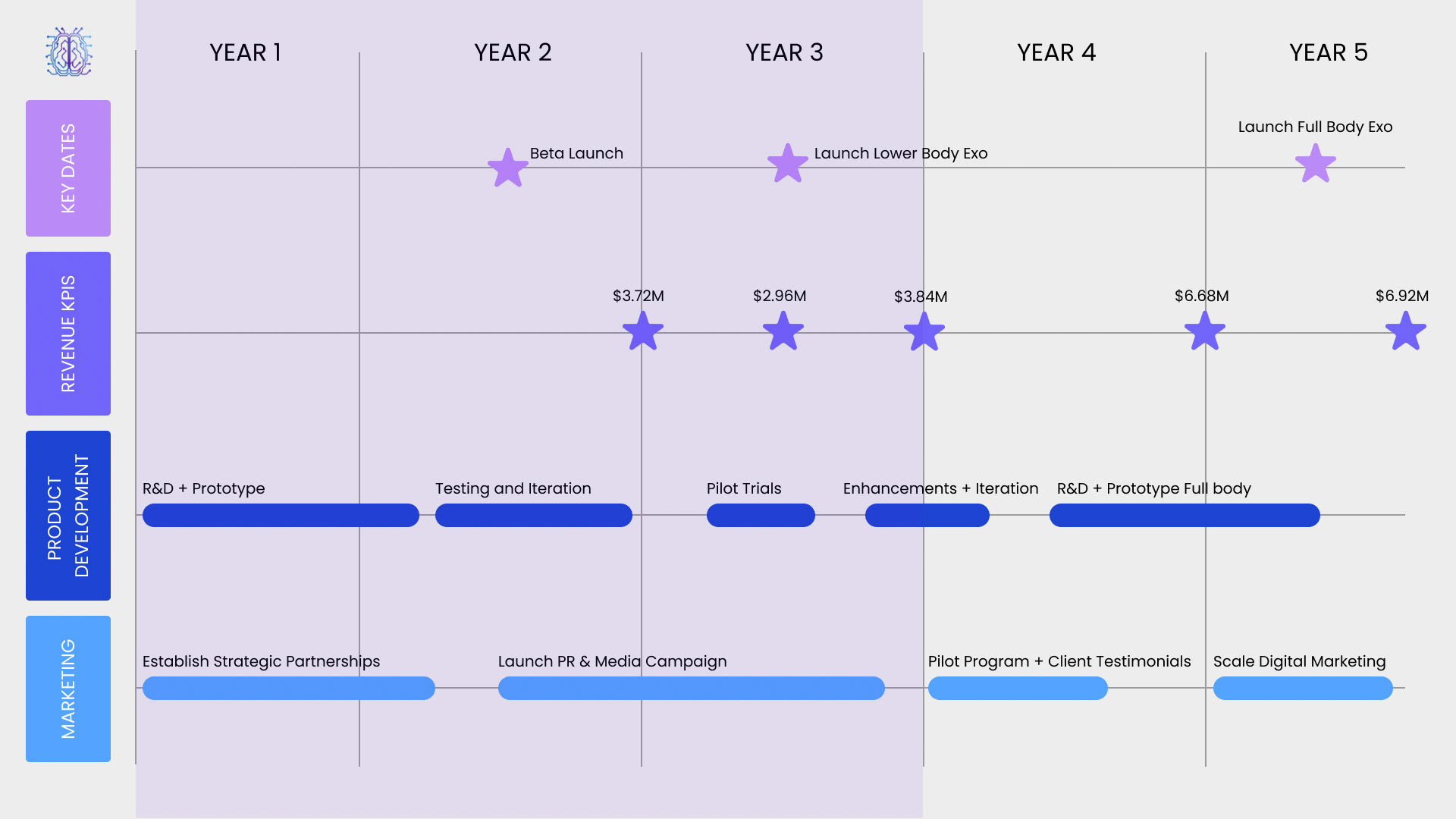
Mindflex
Startup Incubator Pitch | USC IYA – Disruptive Innovation
MindFlex is a BCI-powered exoskeleton designed to restore mobility and autonomy for individuals with paralysis, disabilities, or age-related motor decline. The system connects brainwave activity directly to movement, allowing users to control their body through thought alone—transforming independent motion from a dream into a reality.
The problem:
Over 38 million Americans face mobility challenges due to paralysis or aging. Current solutions—ranging from wheelchairs to basic exosuits—lack intuitive control and full-body mobility. MindFlex fills this gap using brain-computer interfaces and assistive robotics to create a hands-free, thought-driven mobility system.
Over 38 million Americans face mobility challenges due to paralysis or aging. Current solutions—ranging from wheelchairs to basic exosuits—lack intuitive control and full-body mobility. MindFlex fills this gap using brain-computer interfaces and assistive robotics to create a hands-free, thought-driven mobility system.
My role:
- Led scientific and market research on neurotechnology, assistive devices, and user behavior
- Developed the financial pro forma (3-year forecast, TAM/SAM/SOM, and use-of-funds model)
- Presented the business case, user impact, and product strategy during our final pitch
Focus areas:
- Translating neuroscience into product design
- Financial planning for medical tech development
- Public speaking and investor-style storytelling around future-forward healthcare
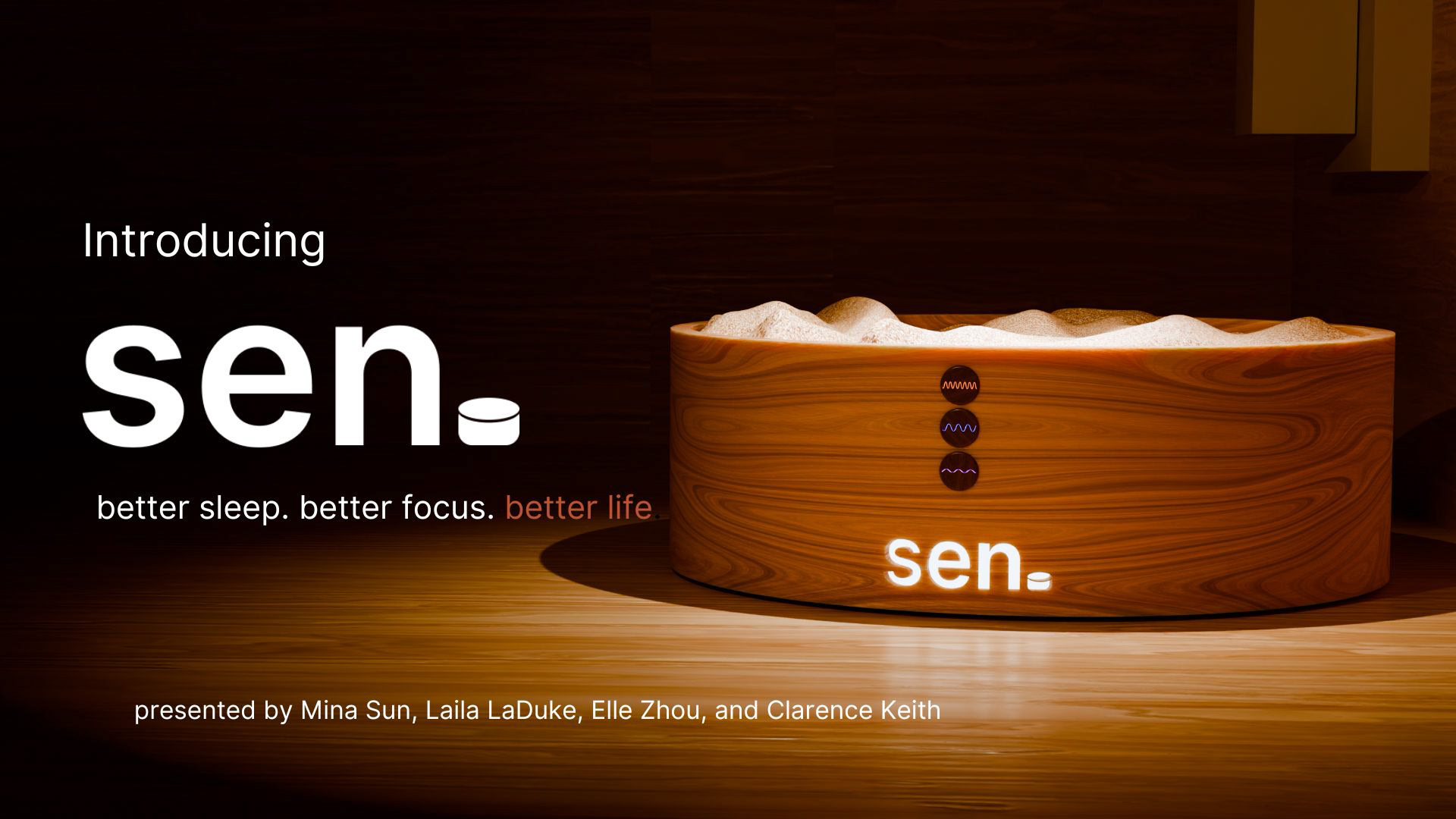
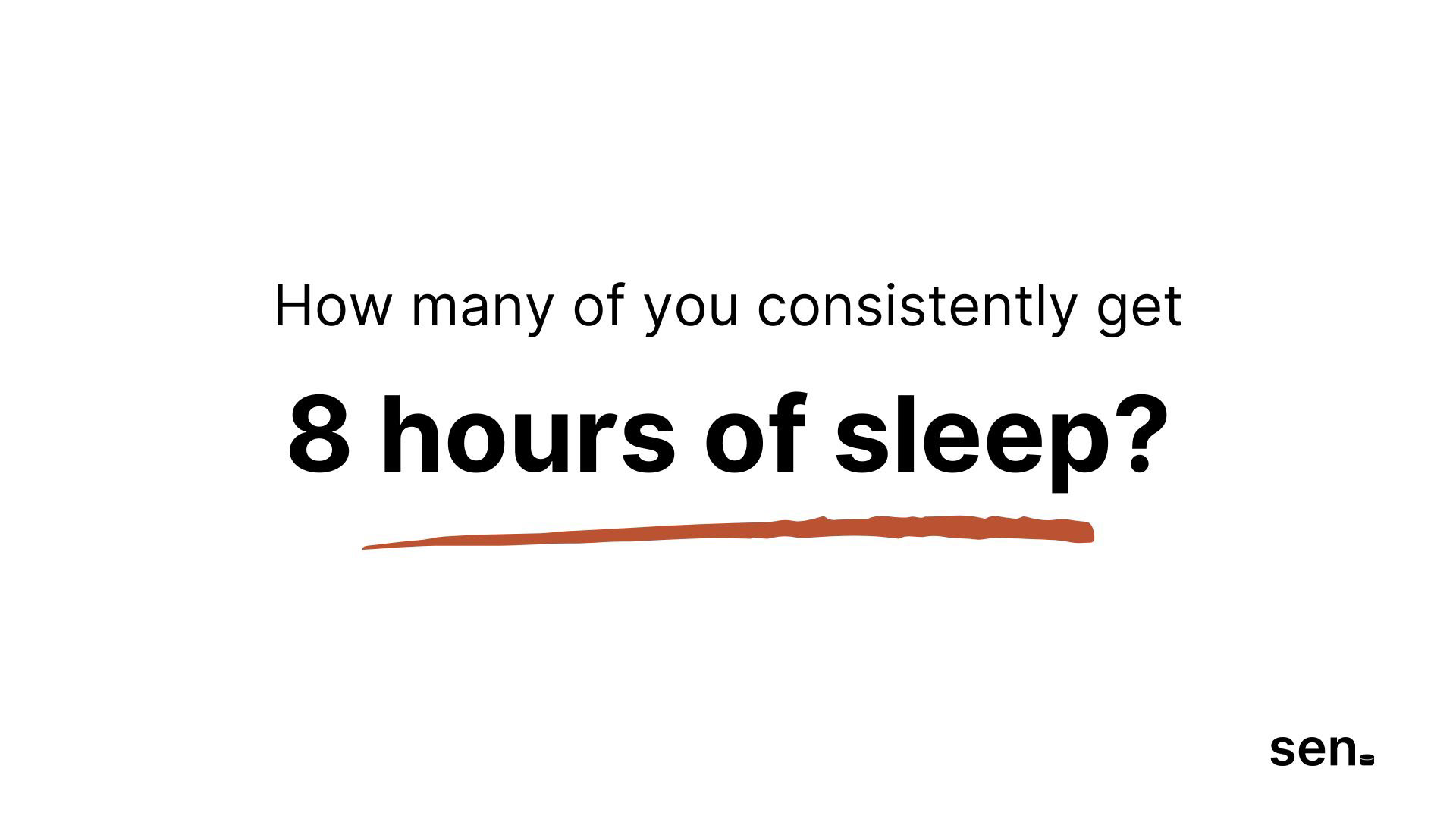

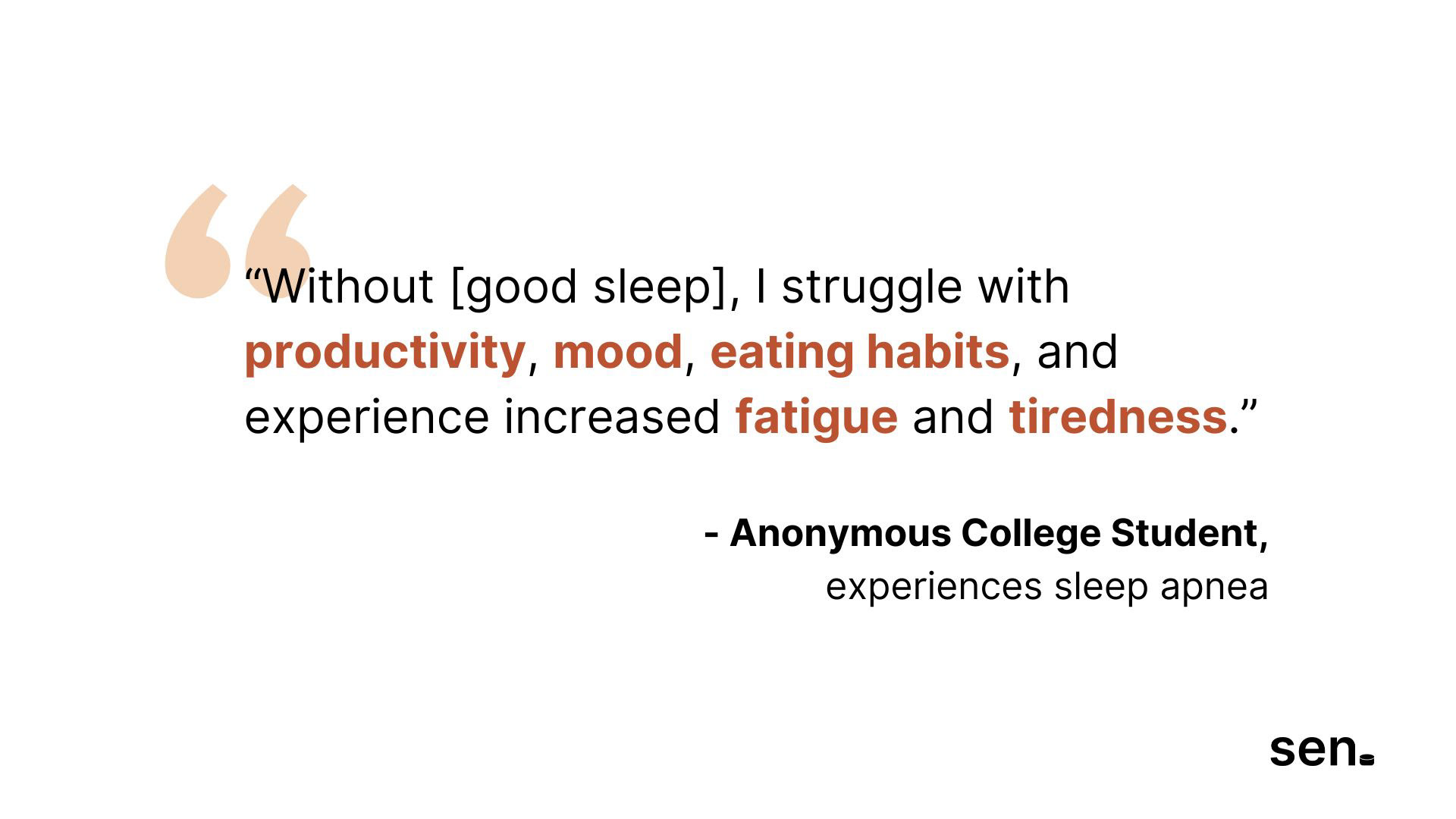
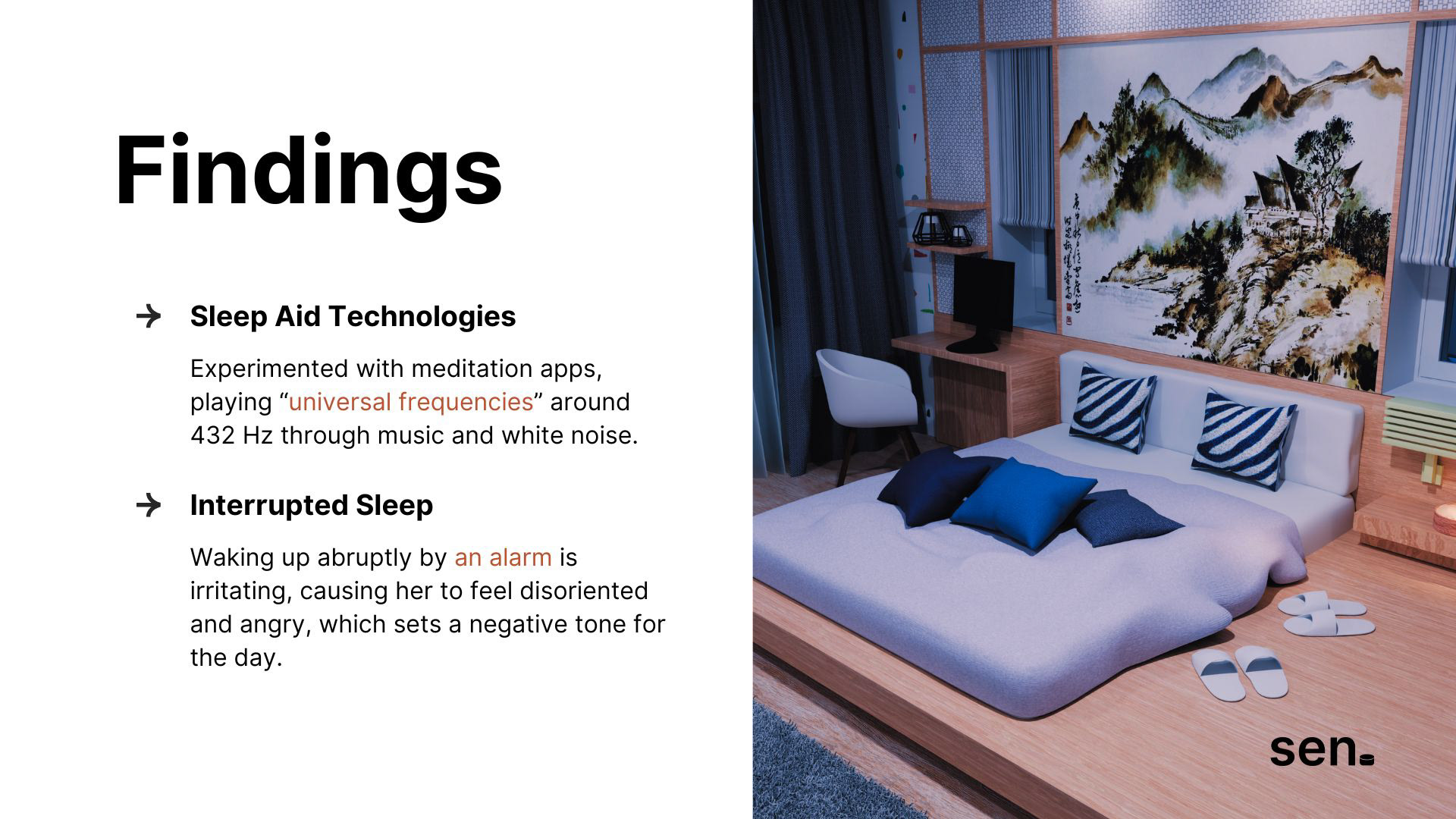


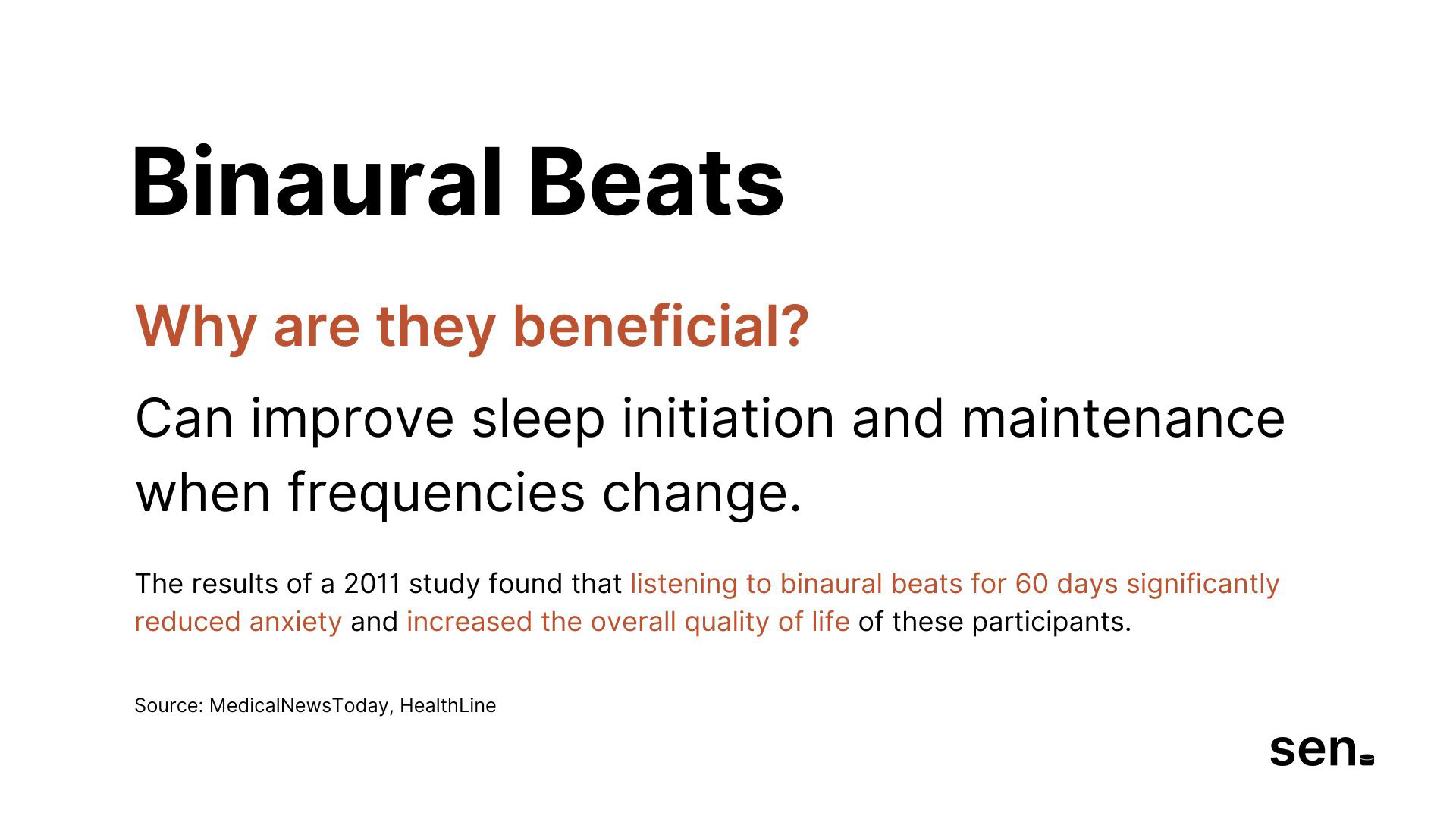
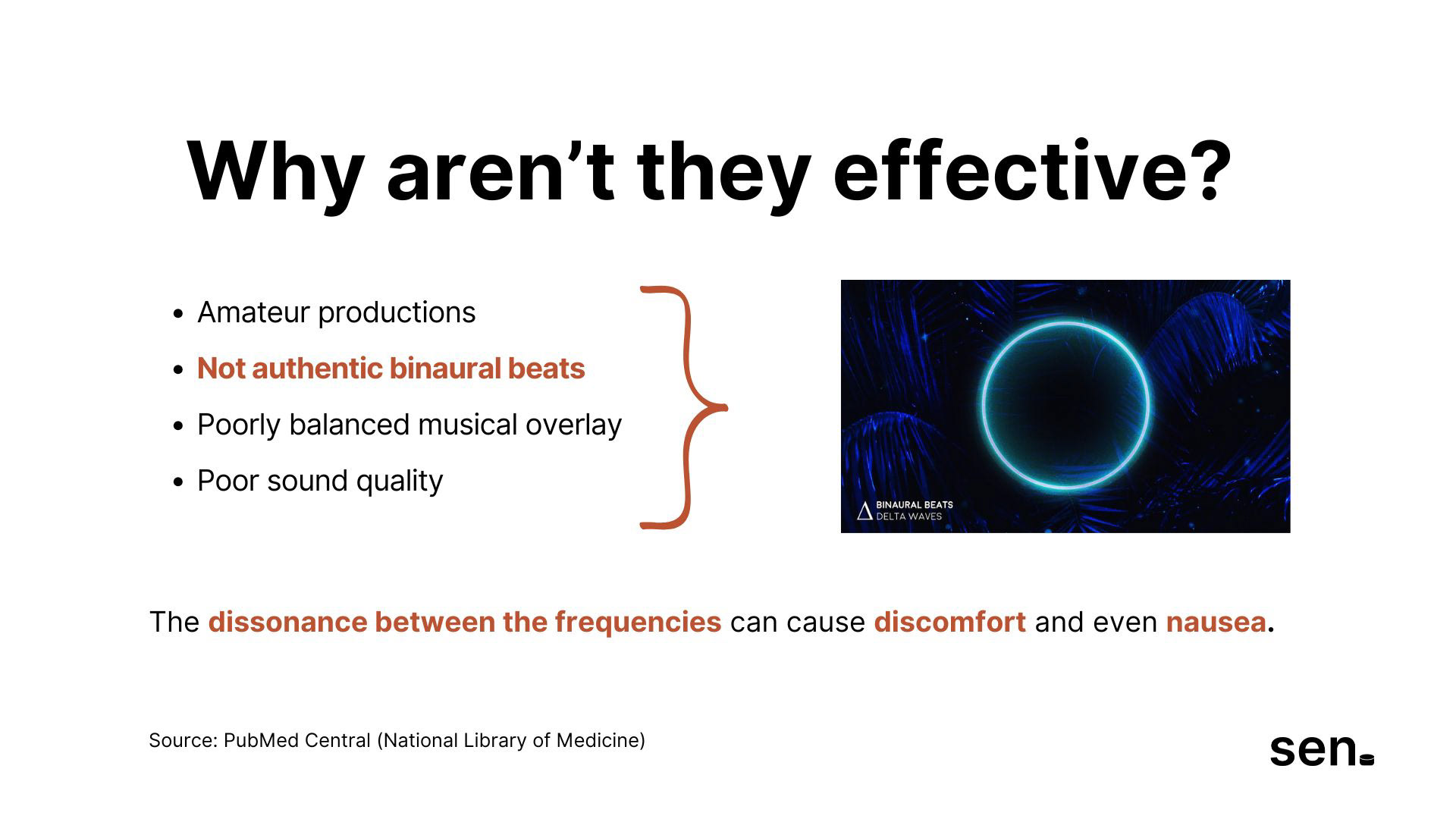
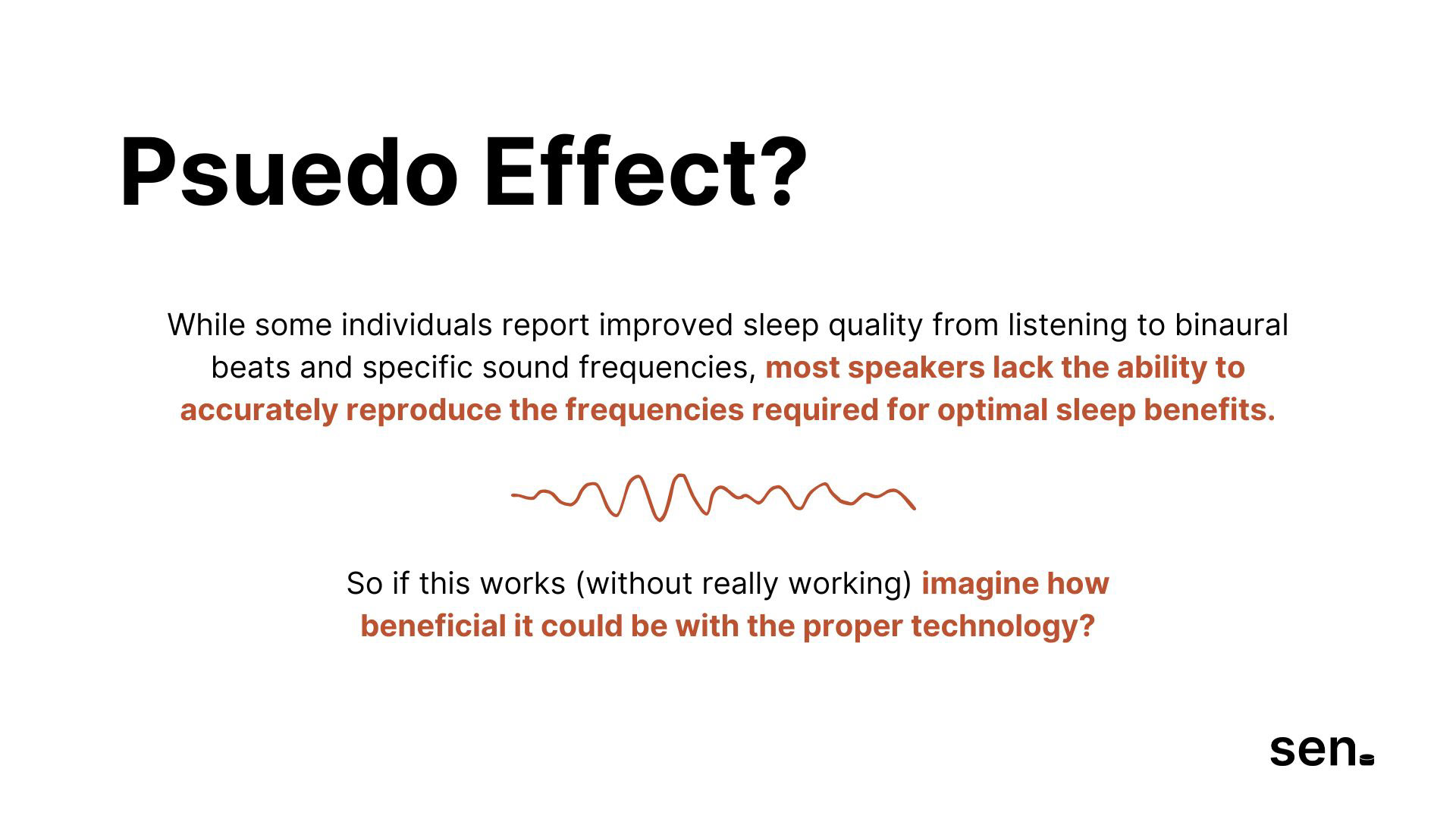




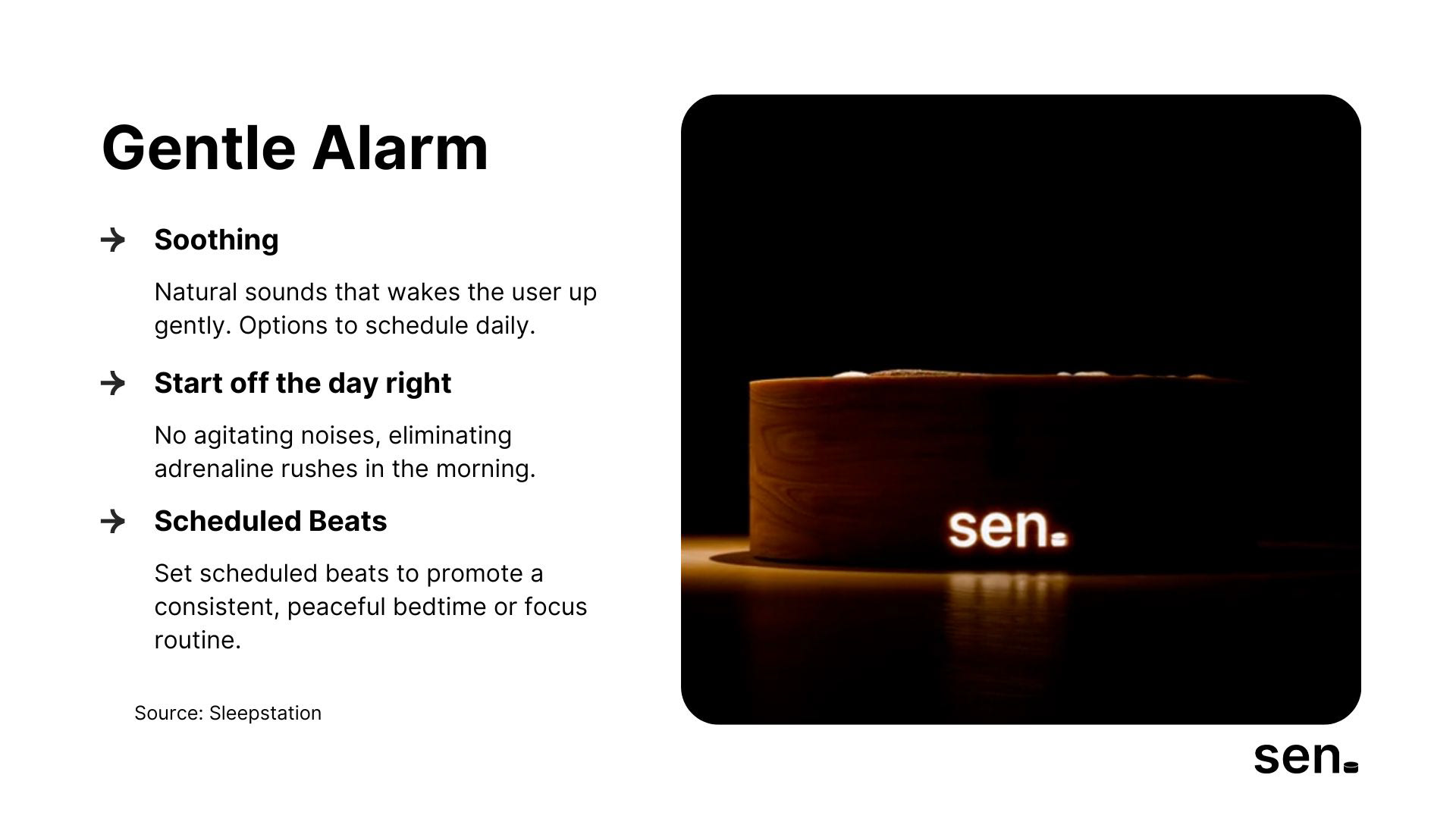



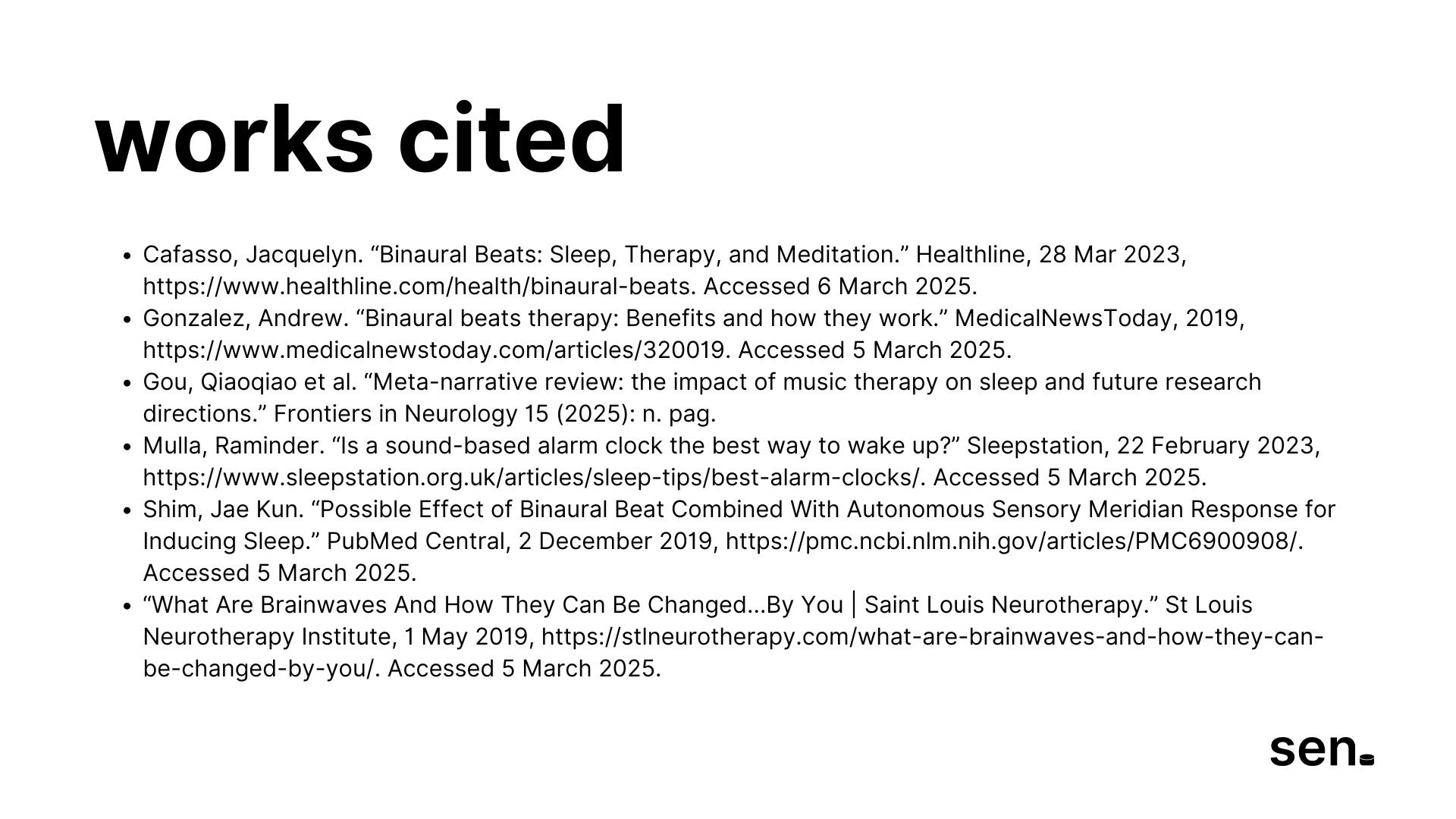
SEN
Startup Incubator Pitch | USC IYA
Sen is a wellness-focused speaker system designed to improve sleep, focus, and mental clarity through the scientifically backed use of binaural beats. By accurately reproducing low-frequency audio that most speakers can't, Sen transforms ambient sound into a therapeutic experience tailored to brainwave states—helping users sleep more deeply, focus more clearly, and wake up more peacefully.
The problem:
Most sleep tech on the market lacks proper frequency calibration, delivering low-quality or even nausea-inducing audio. Sen addresses this by engineering an accurate and emotionally intentional listening experience supported by neurological research.
The problem:
Most sleep tech on the market lacks proper frequency calibration, delivering low-quality or even nausea-inducing audio. Sen addresses this by engineering an accurate and emotionally intentional listening experience supported by neurological research.
My role:
- Led product design and form development
- Conducted in-depth user and scientific research on sleep behavior and sound therapy
- Articulated the problem space and product need as the primary speaker during the pitch
- Designed interaction features like the tactile wave buttons, Zen Garden integration, and voice control system
Focus areas:
Sound therapy and neuroscience research
Human-centered hardware design
Pitch storytelling around emotional wellness and daily rituals
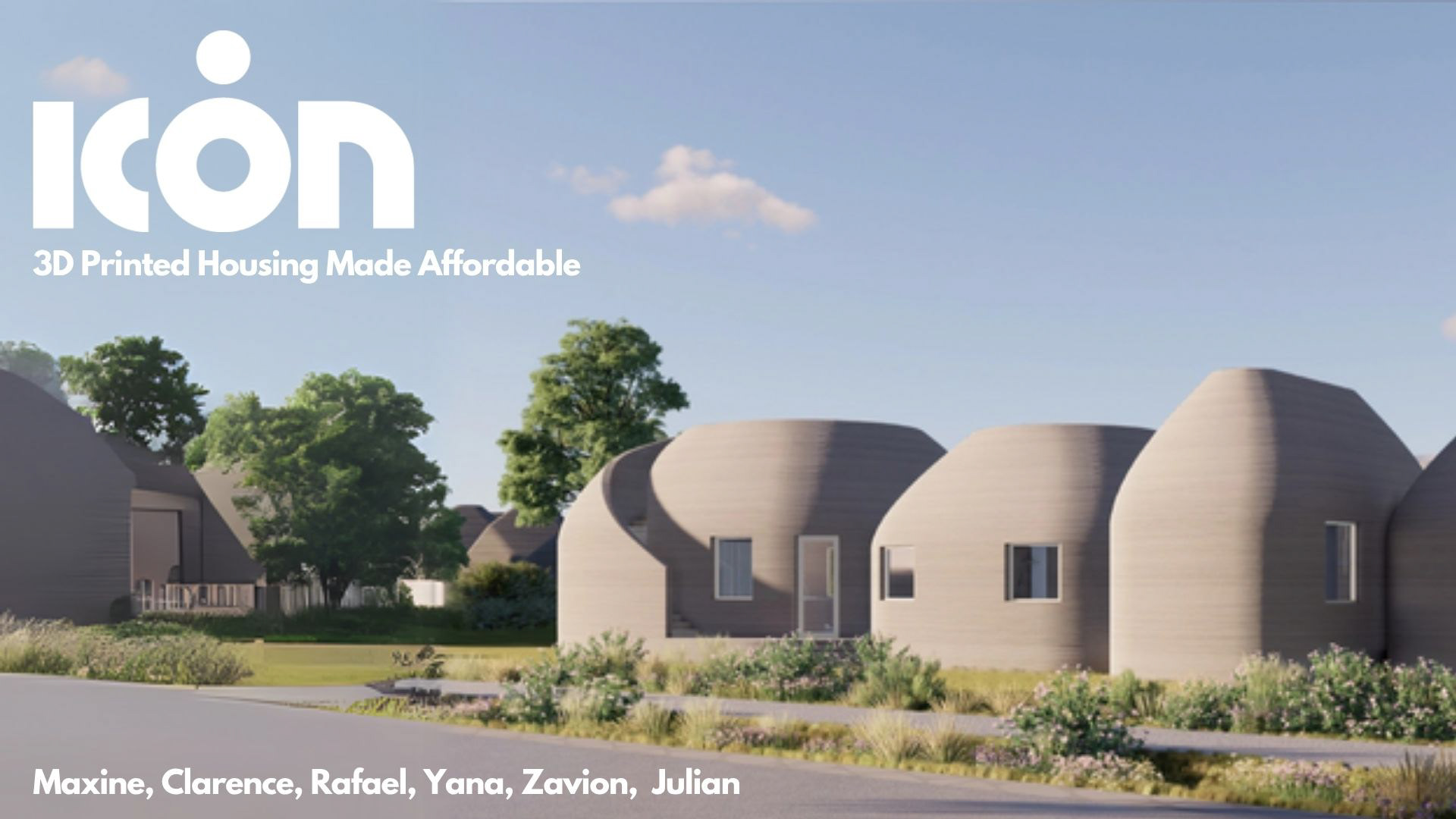
case study intro

what is icon video

additional info
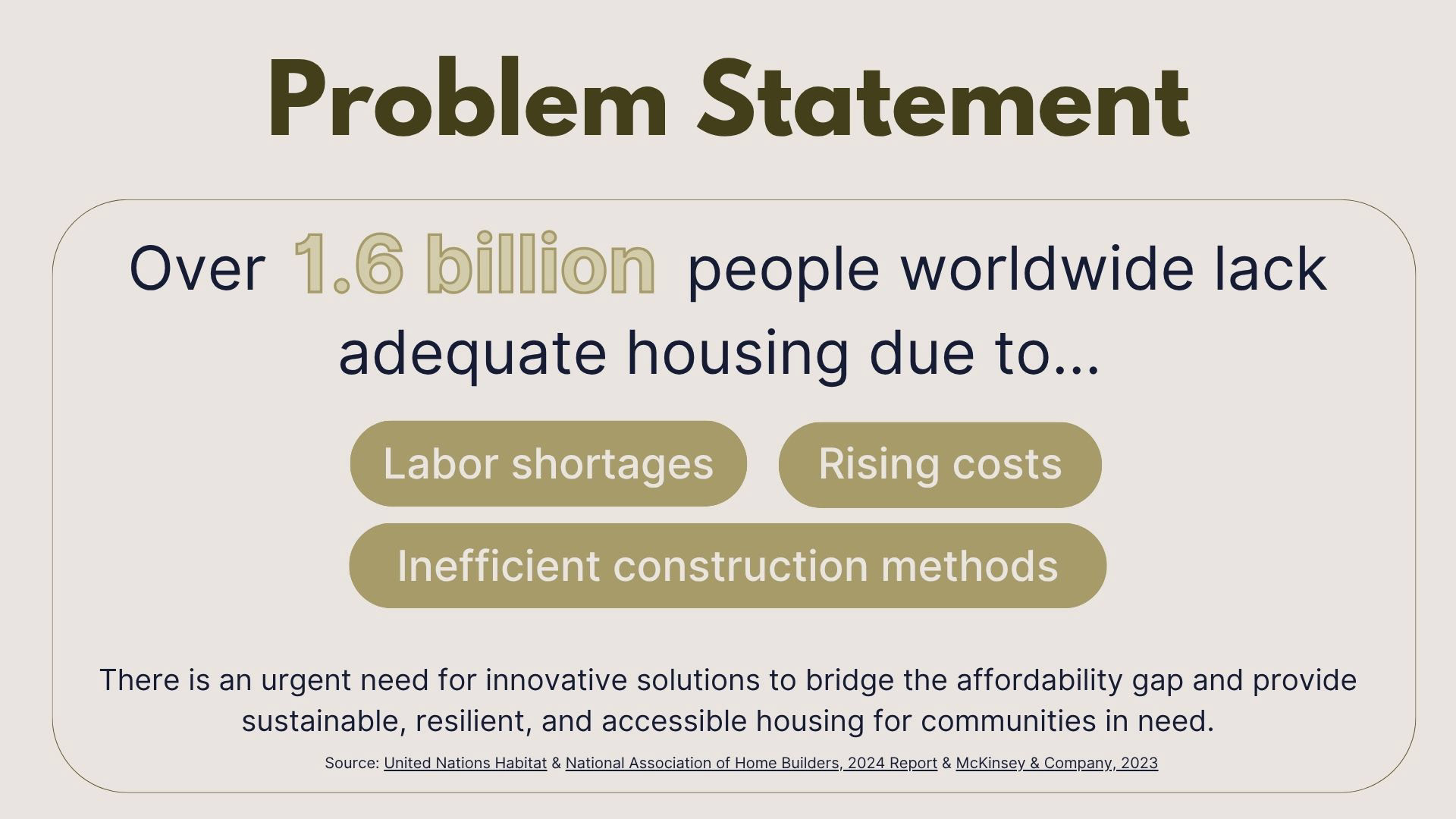
problem statement

problem statement storyboard

problem statement storyboard

problem statement storyboard
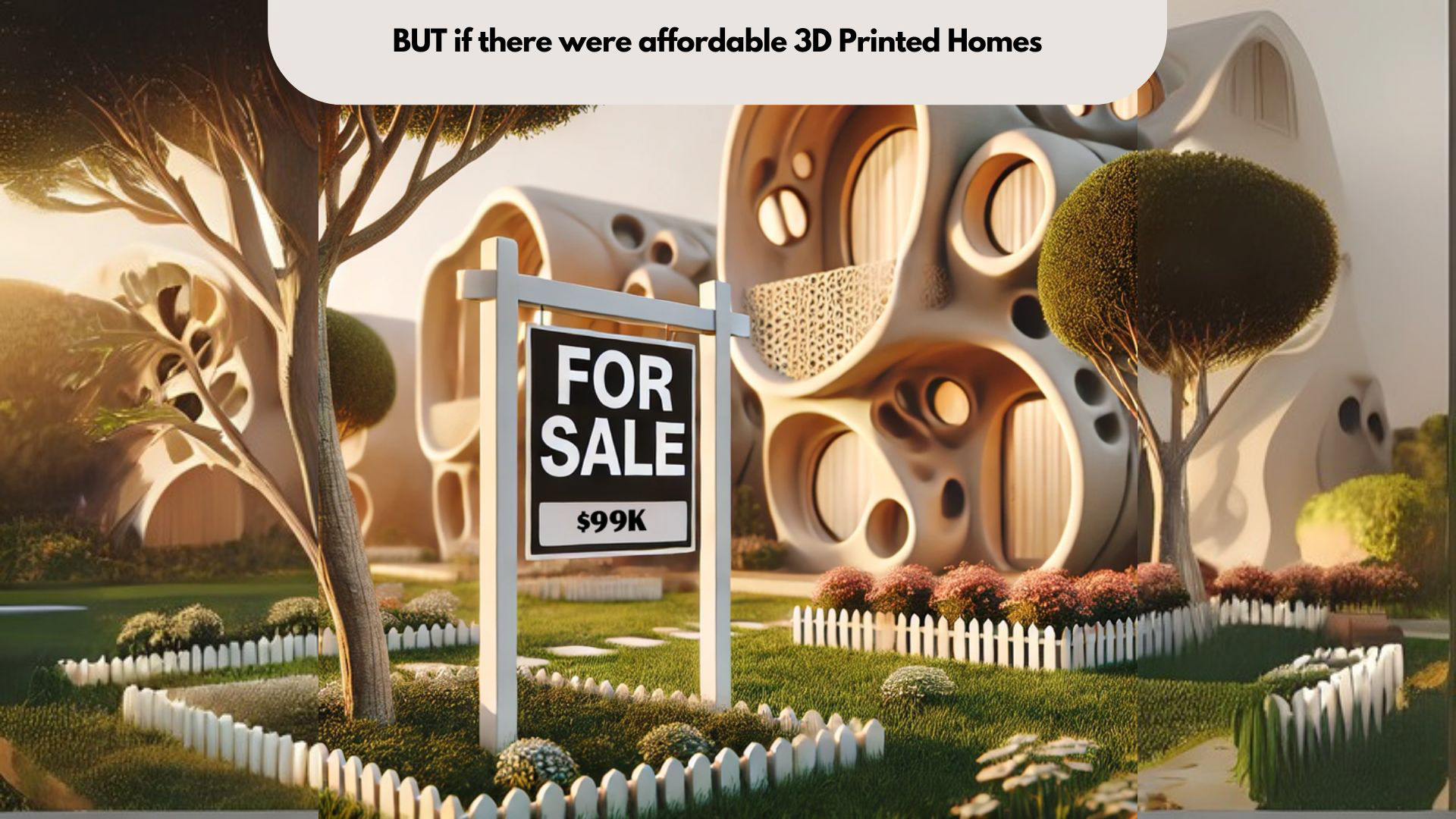
problem statement storyboard
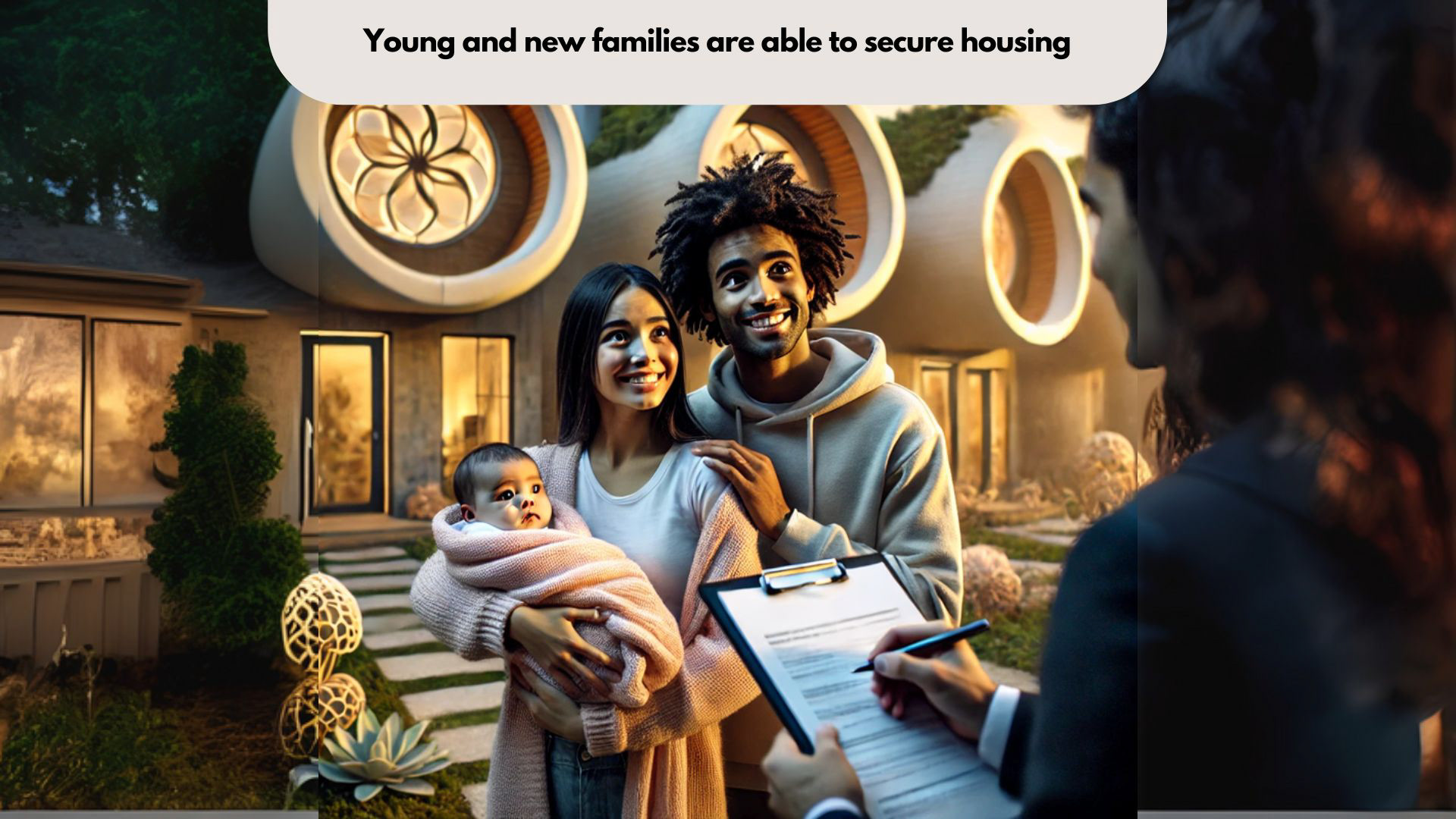
problem statement storyboard
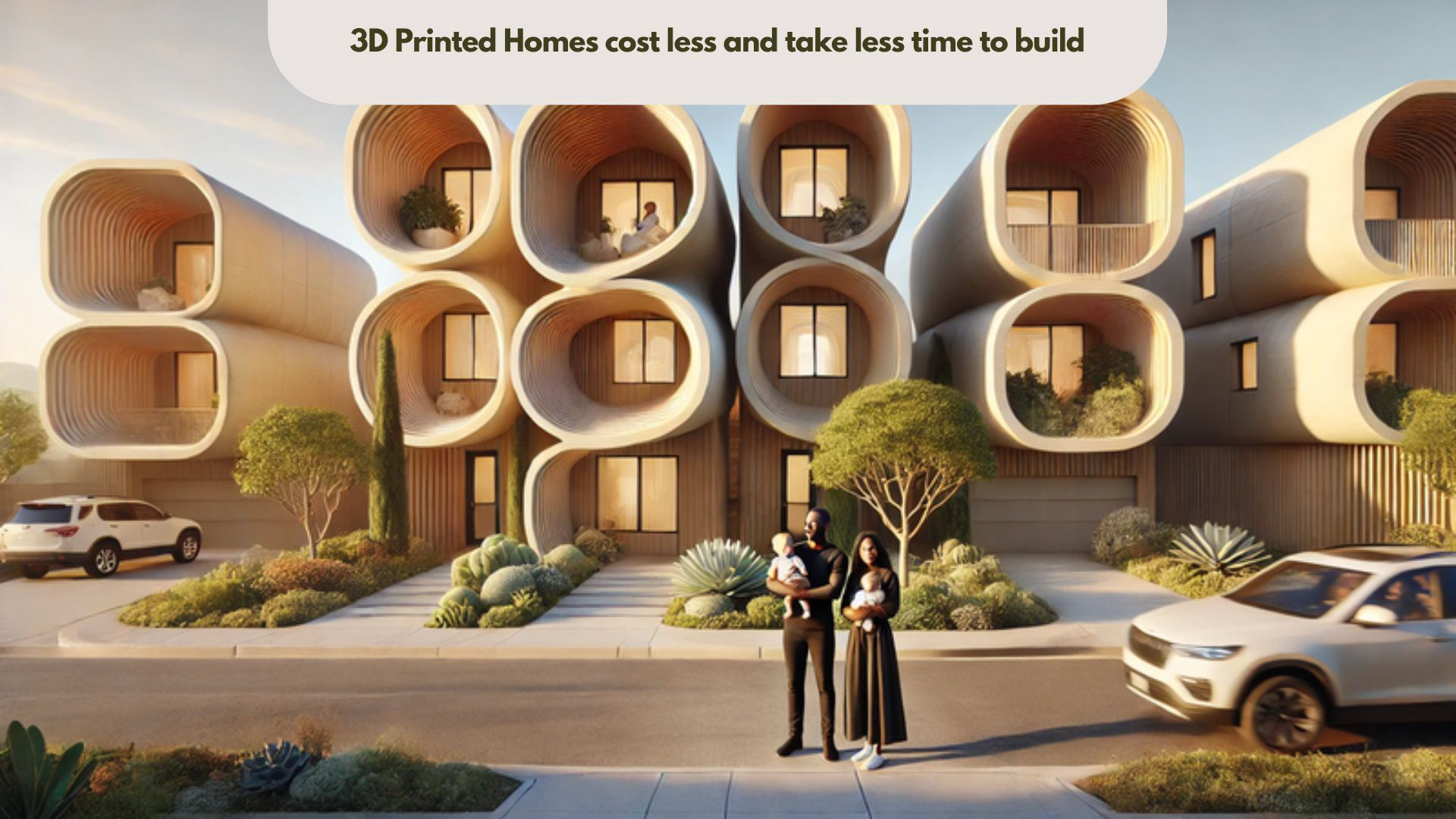
problem statement storyboard

problem statement storyboard

competitive comparison char

competitive landscape
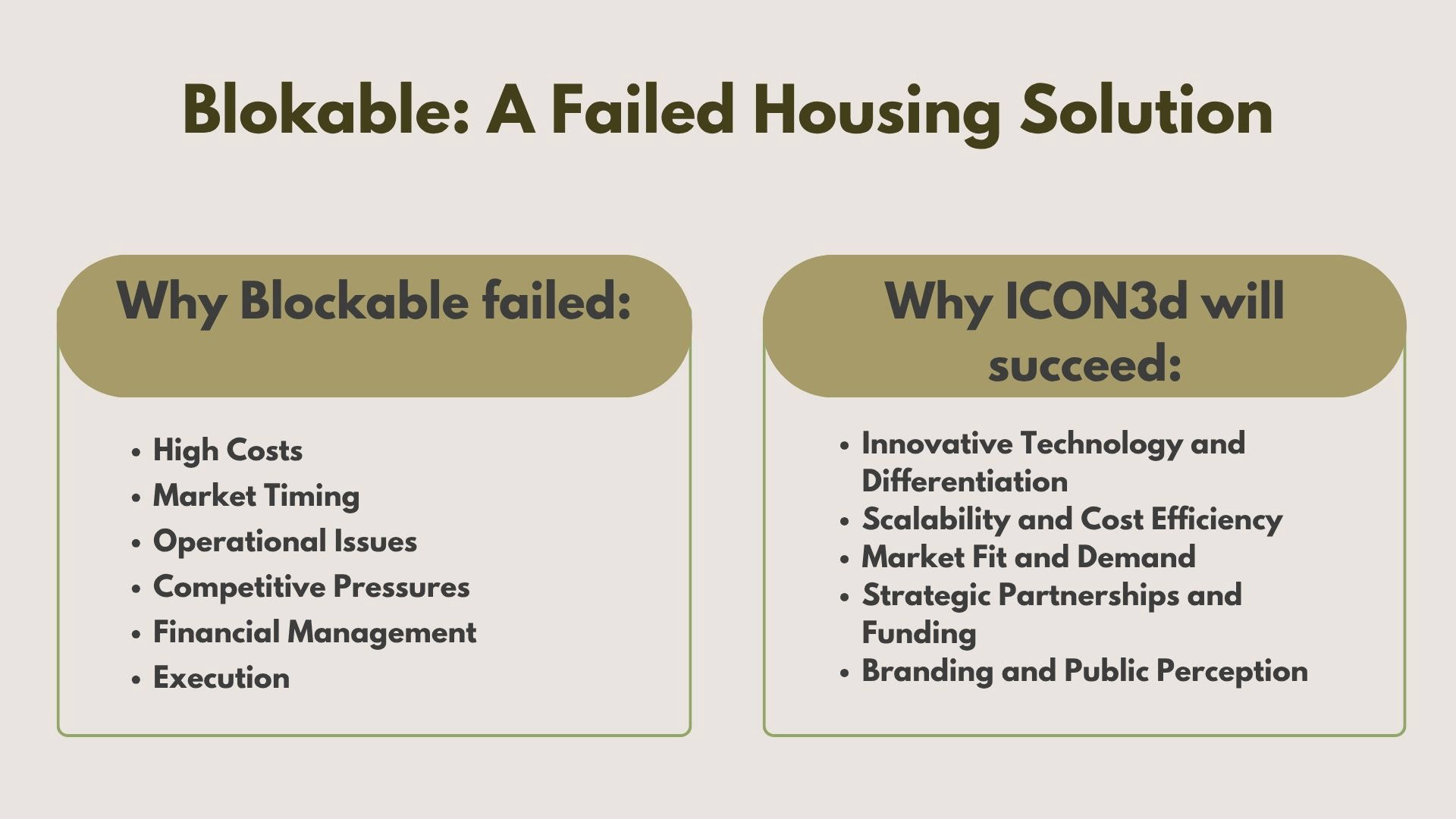
addressing similar companies and their failures
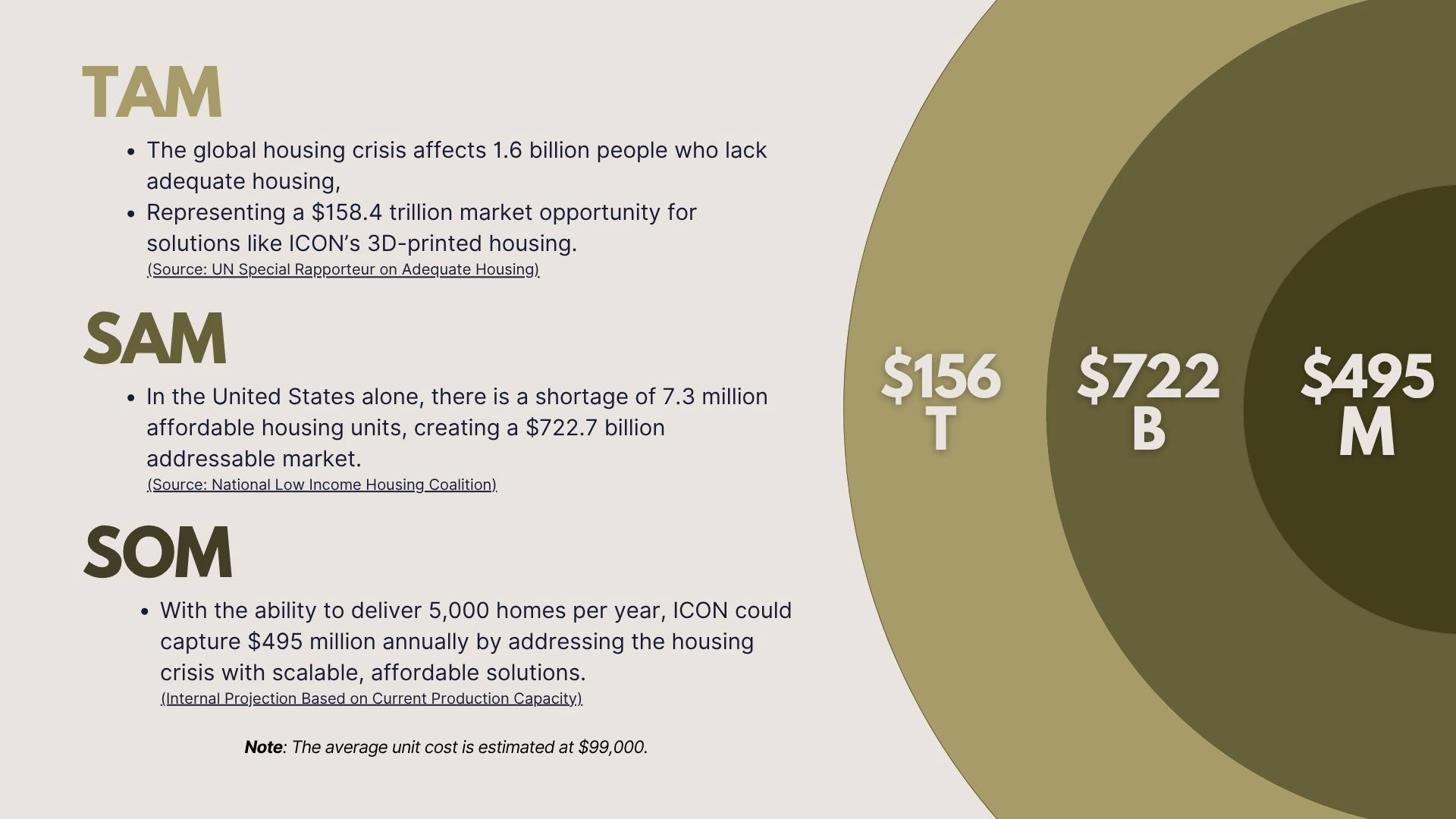
TAM SAM SOM
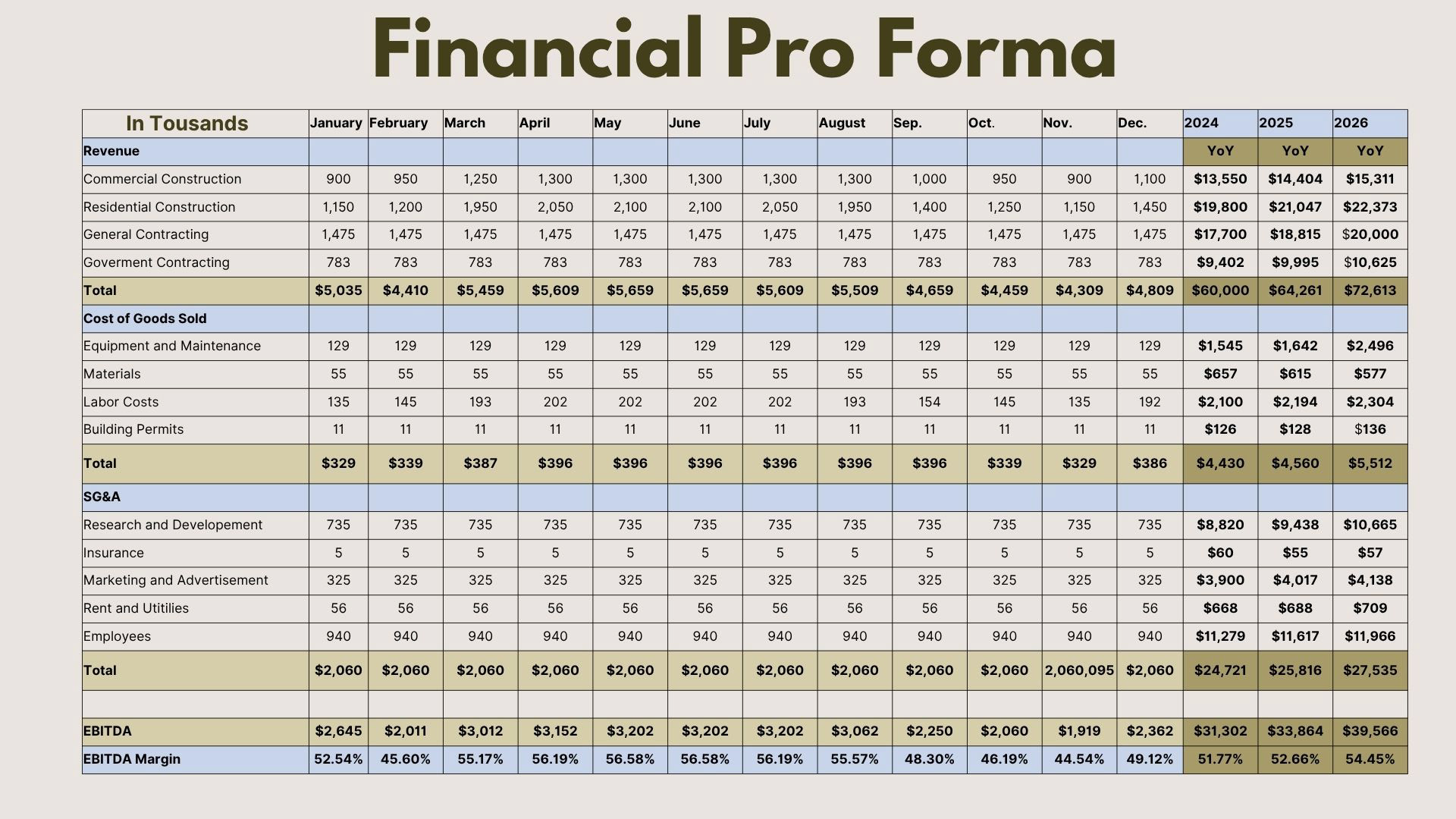
Financial Pro Forma
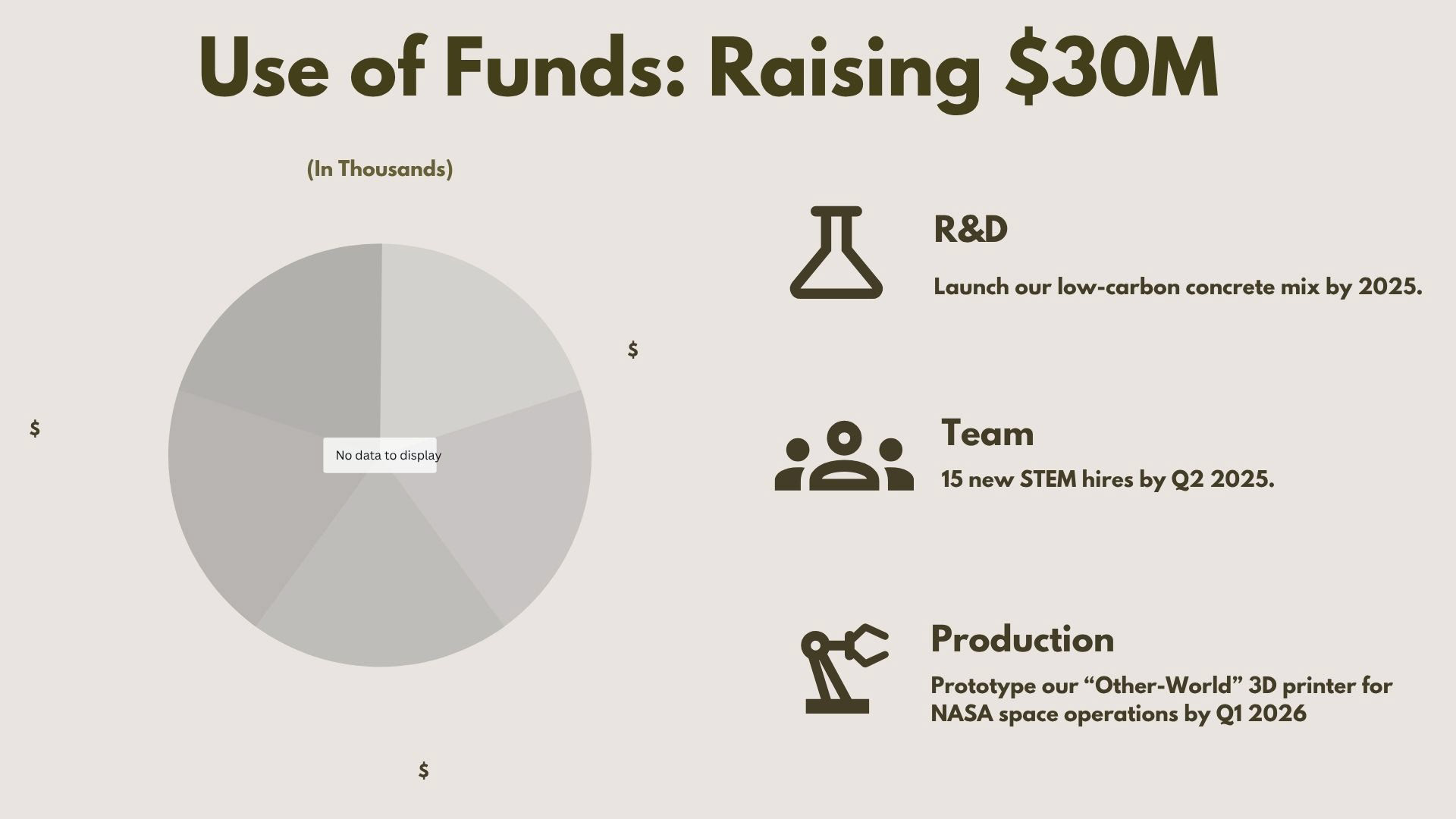
Use of Funds

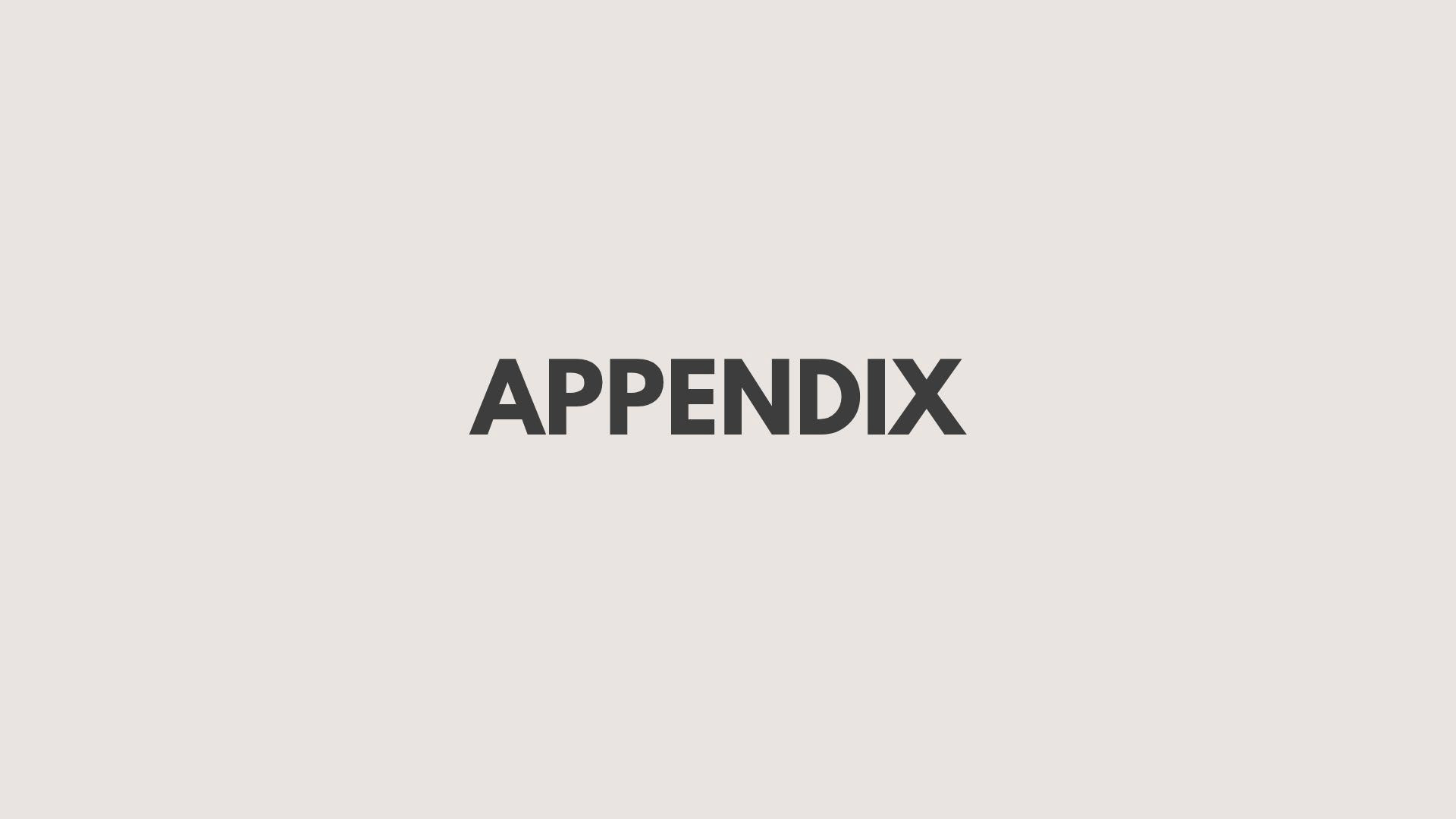

BMC

Icon - case study
Business Case Study & Simulation | Disruptive Innovation @ USC IYA
This project was an in-depth business case study and simulation in which our team created a fictional housing startup inspired by ICON3D’s disruptive approach to affordable construction. Positioned as a future-facing competitor in the 3D printed housing space, our company sought to reimagine how modular, sustainable homes could scale globally to solve the housing crisis.
Our task:
Analyze ICON3D’s business model and market positioning, then pitch as if we were the company itself—forecasting financials, presenting core differentiators, and simulating investor interest in future innovations like off-planet prototyping and low-carbon concrete mixes.
Analyze ICON3D’s business model and market positioning, then pitch as if we were the company itself—forecasting financials, presenting core differentiators, and simulating investor interest in future innovations like off-planet prototyping and low-carbon concrete mixes.
My role:
- Led research on ICON3D’s competitors, market demand, and technology stack
- Presented our analysis and strategic narrative during the final investor-style pitch
- Developed the financial pro forma (3-year revenue forecast, cost structure, and EBITDA projections) to support our business case
Focus areas:
- Business model innovation through disruptive technology
- Sustainable infrastructure solutions for global housing shortages
- Financial modeling, TAM/SAM/SOM analysis, and simulation of funding needs